27 минуты чтения
27 минуты чтения
The BEST Engineering Degrees RANKED (2025)
In this article, we're diving into the top 20 engineering degrees, focusing on starting salaries, average earnings, and the anticipated job growth over the next 10 years. Let's explore these pathways with a twist on the expected and incorporate new data into our exploration. I will tell you my top 3 degrees at the end of the article.
# Number 20: Materials Engineering
Beginners might see a starting salary of around $63,000, with potential growth to $100,000.
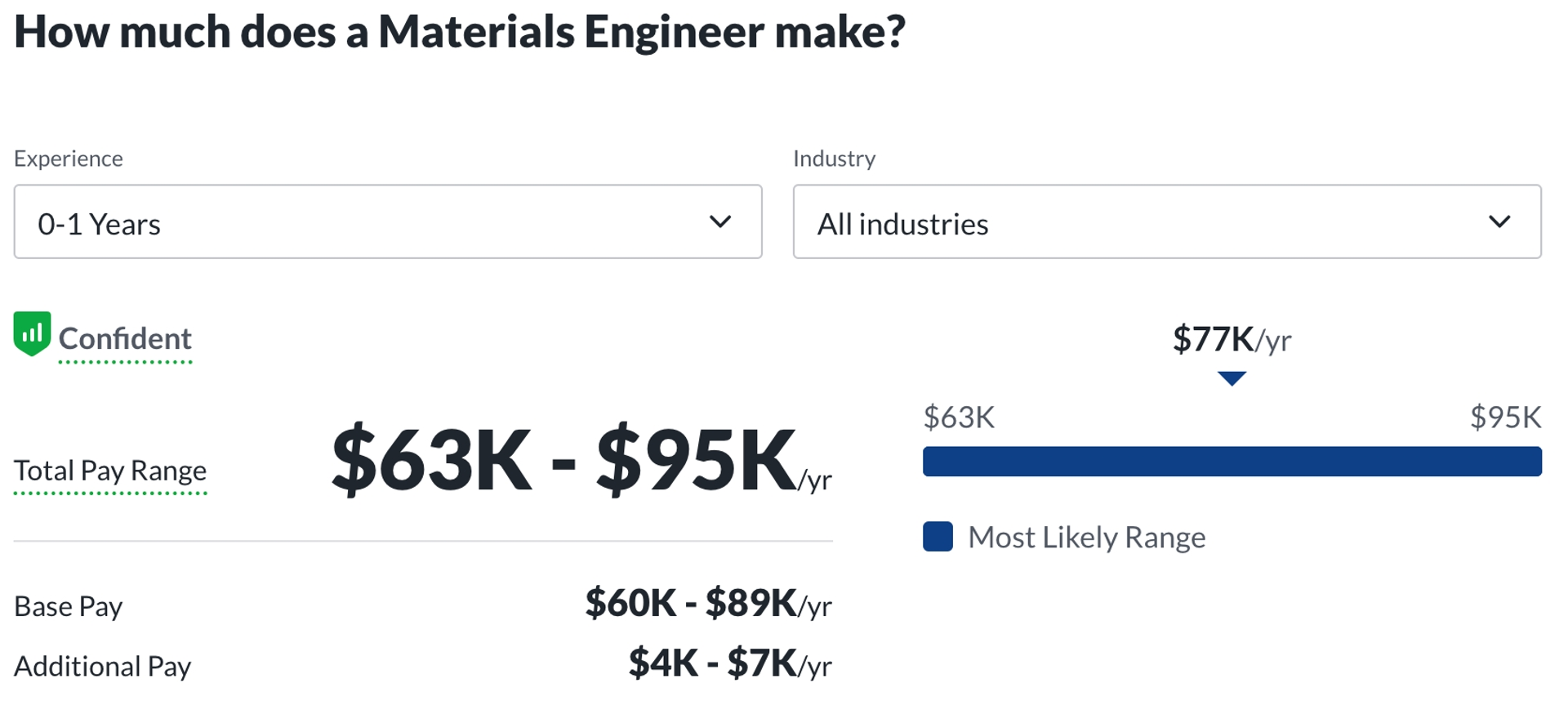
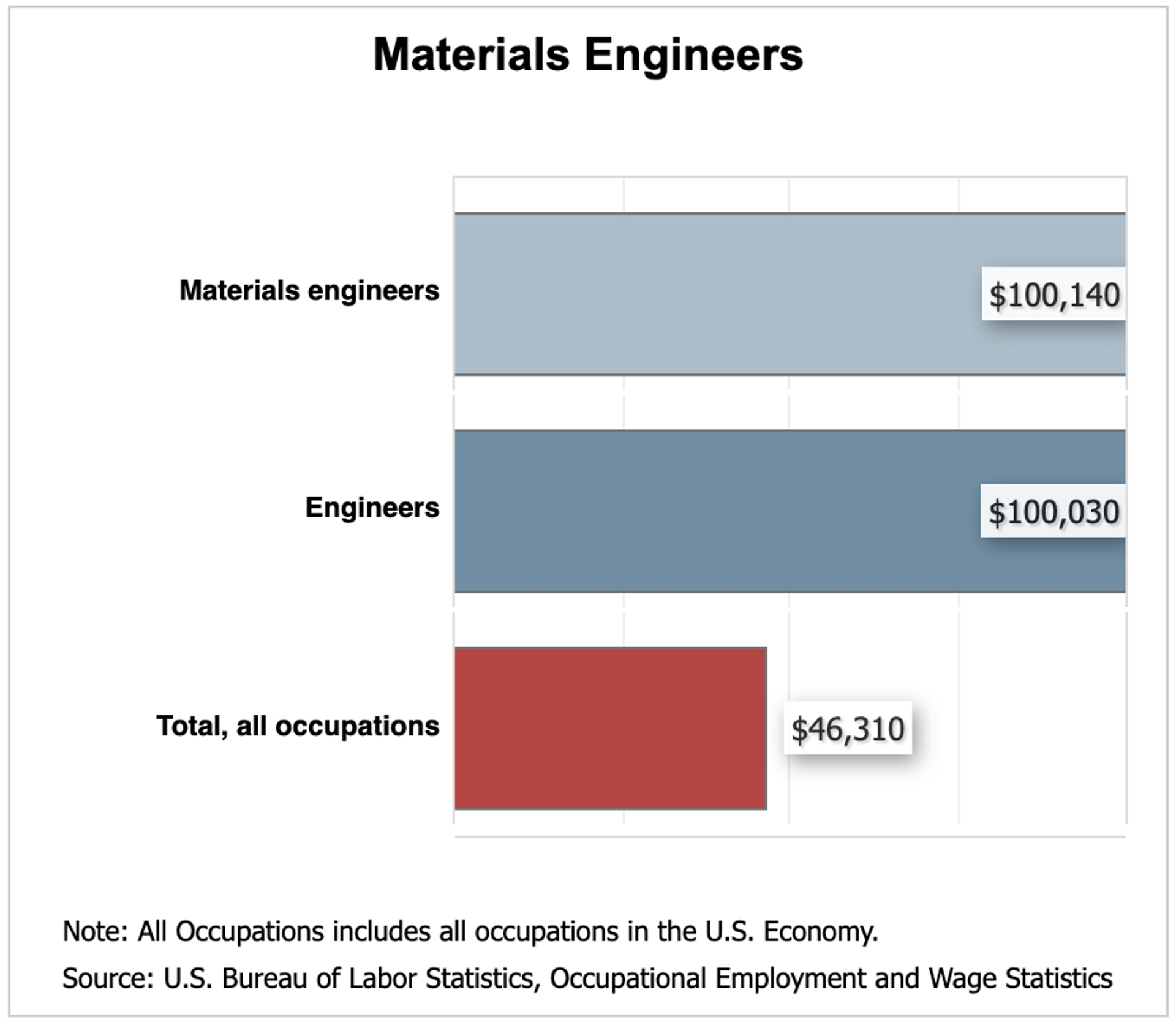
Employment of materials engineers is projected to grow 5 percent in the next 10 years, faster than the average for all occupations.
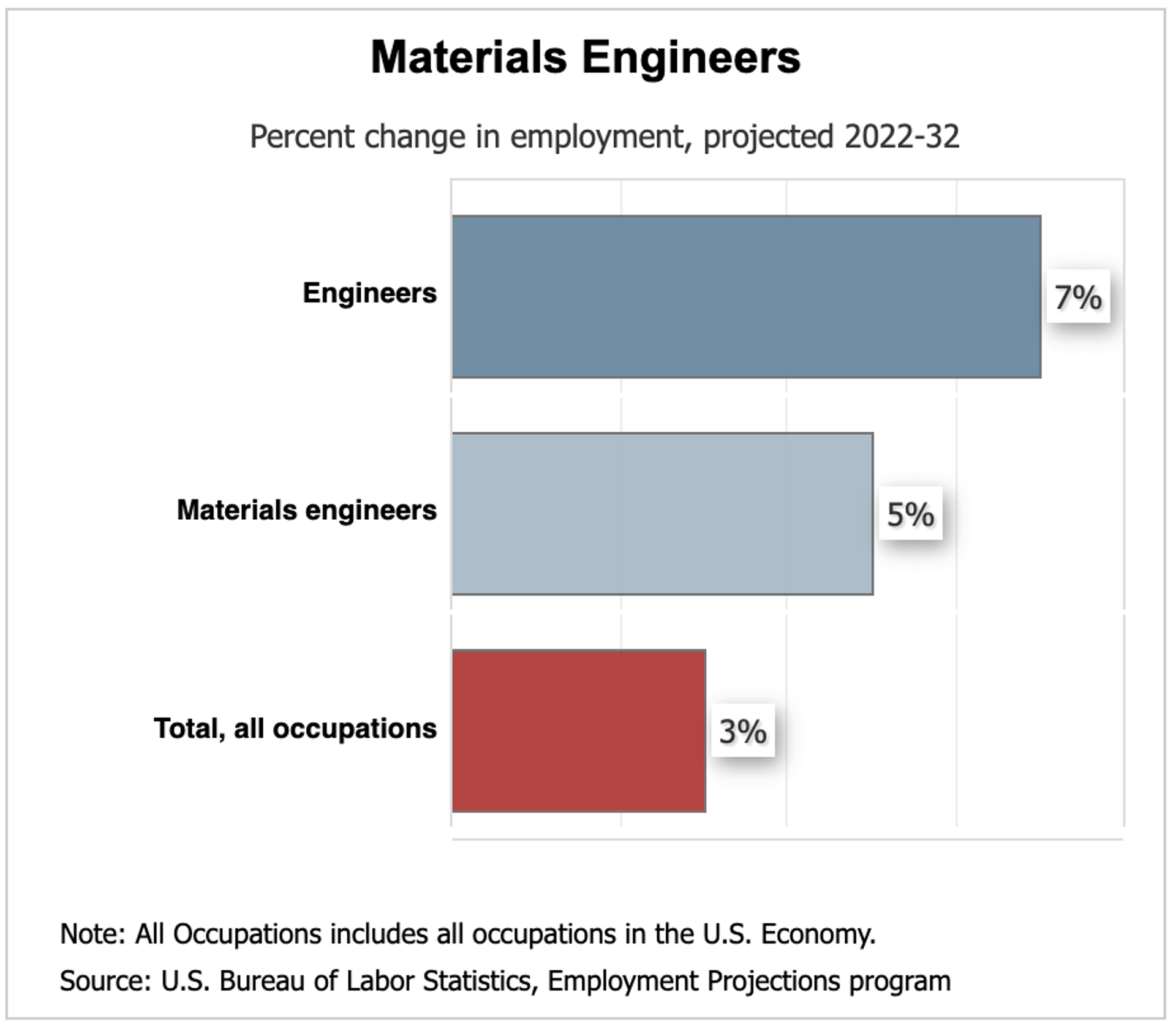
As demand for new materials and manufacturing processes continues to increase, more materials engineers are expected to be needed to help develop these products and systems. For example, new metal alloys are expected to be developed to make airplanes lighter and more fuel-efficient. A greater focus on environmental sustainability also may create demand for materials engineers.
# Number 19: Agricultural Engineering
Moving to number 19, Agricultural Engineering emerges as a critical player in our quest for sustainability and efficiency in food production. Initial salaries can be approximately $57,000, with potential growth to $83,260 as expertise deepens.
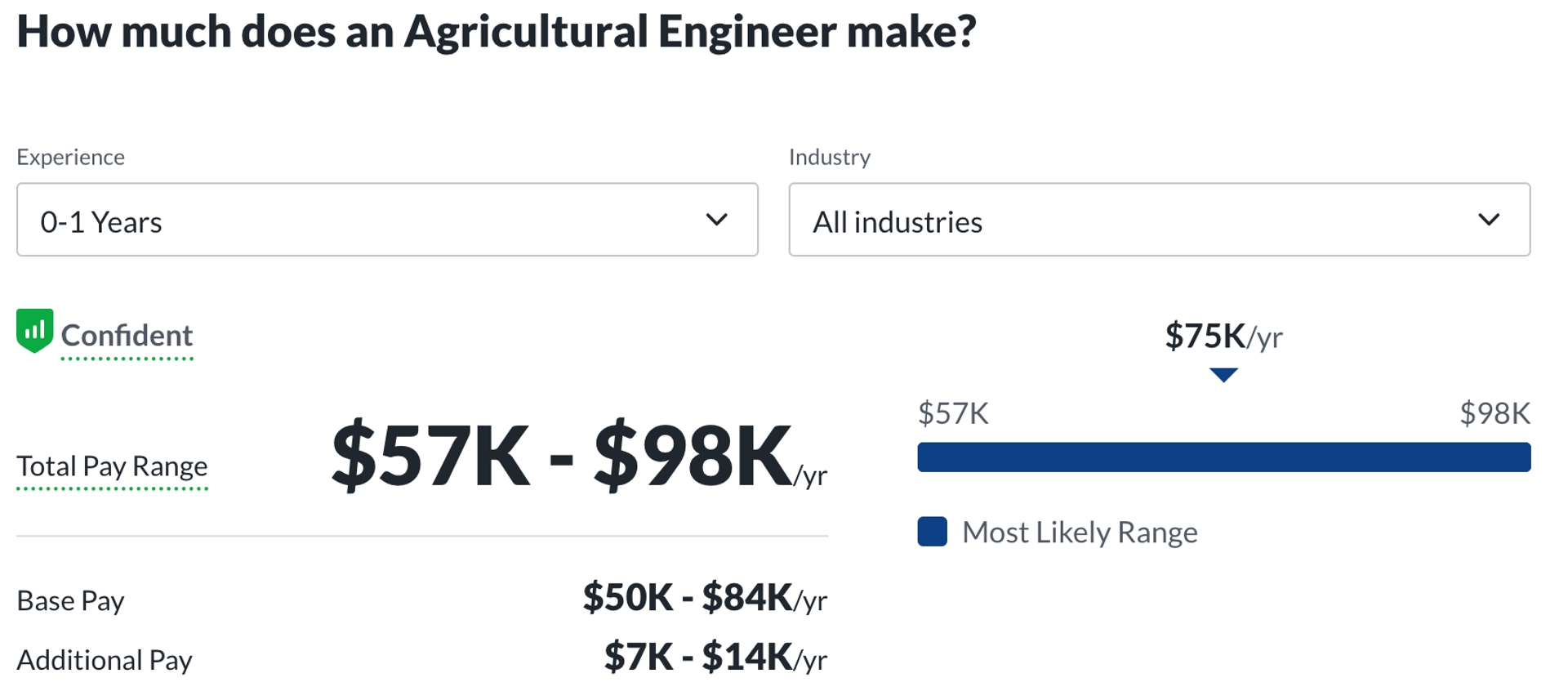
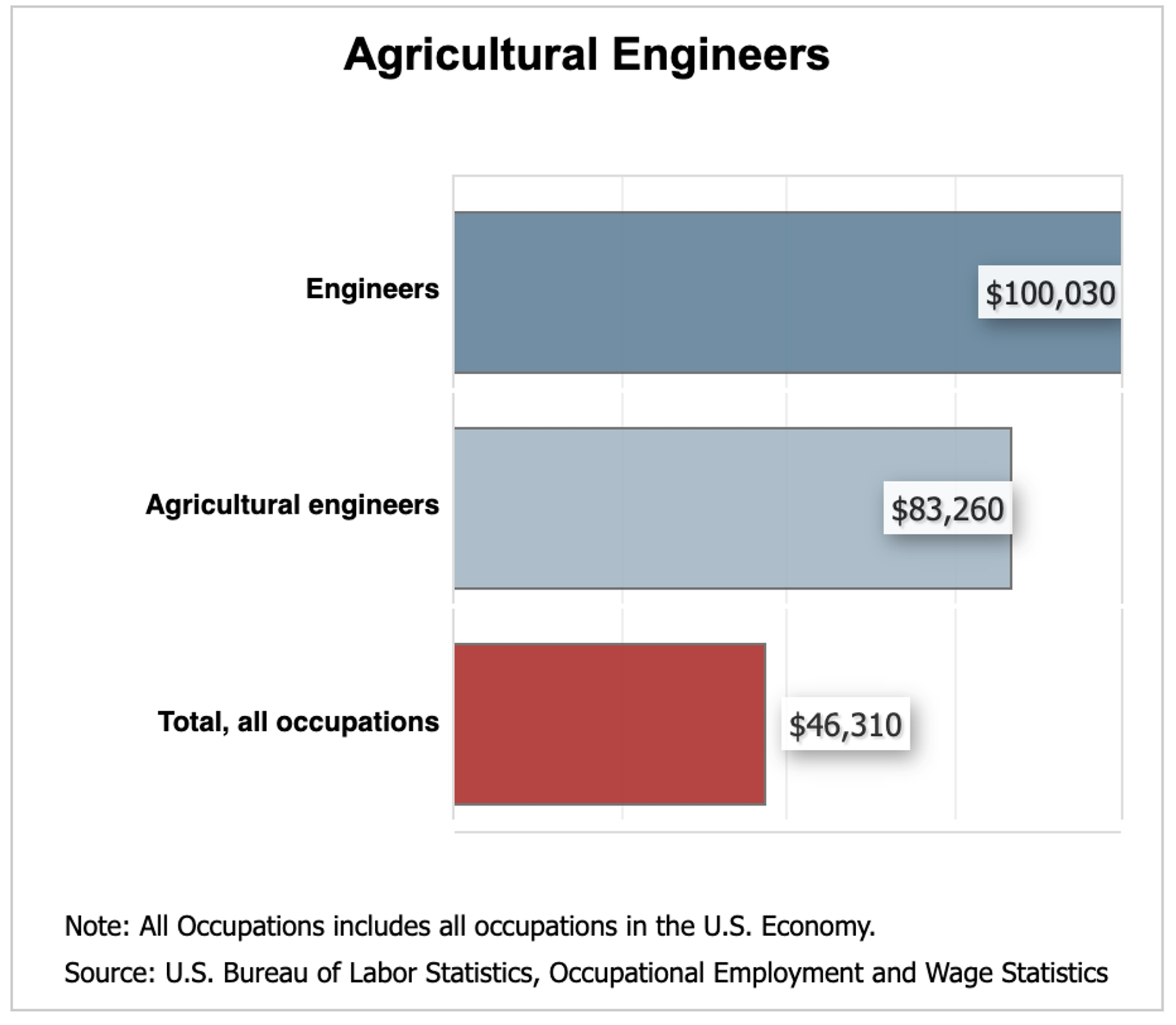
Employment of agricultural engineers is projected to grow 6 percent.
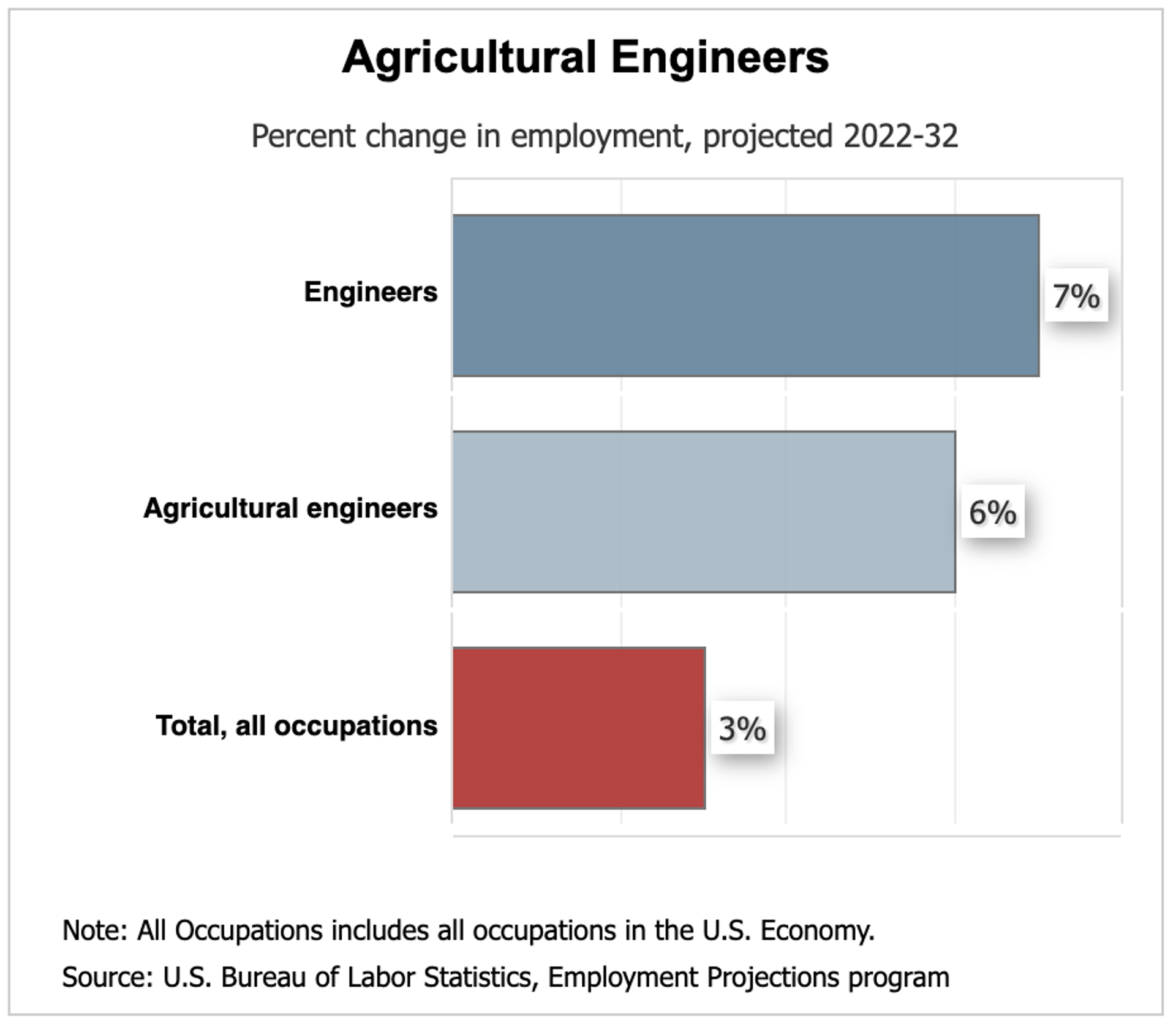
Farms will continue to need agricultural engineers to design more efficient machinery, equipment, and buildings and to help reduce environmental damage.
Agricultural engineers are expected to continue working on projects such as alternative energies and biofuels; precision and automated farming technologies for irrigation, spraying, and harvesting.
In addition, strong global competition should further support demand for these workers as farmers seek ways to reduce costs and increase production.
# Number 18: Environmental Engineering
Environmental Engineering takes the 18th spot, with a starting salary of about $60,000 and average earnings of around $96,530.
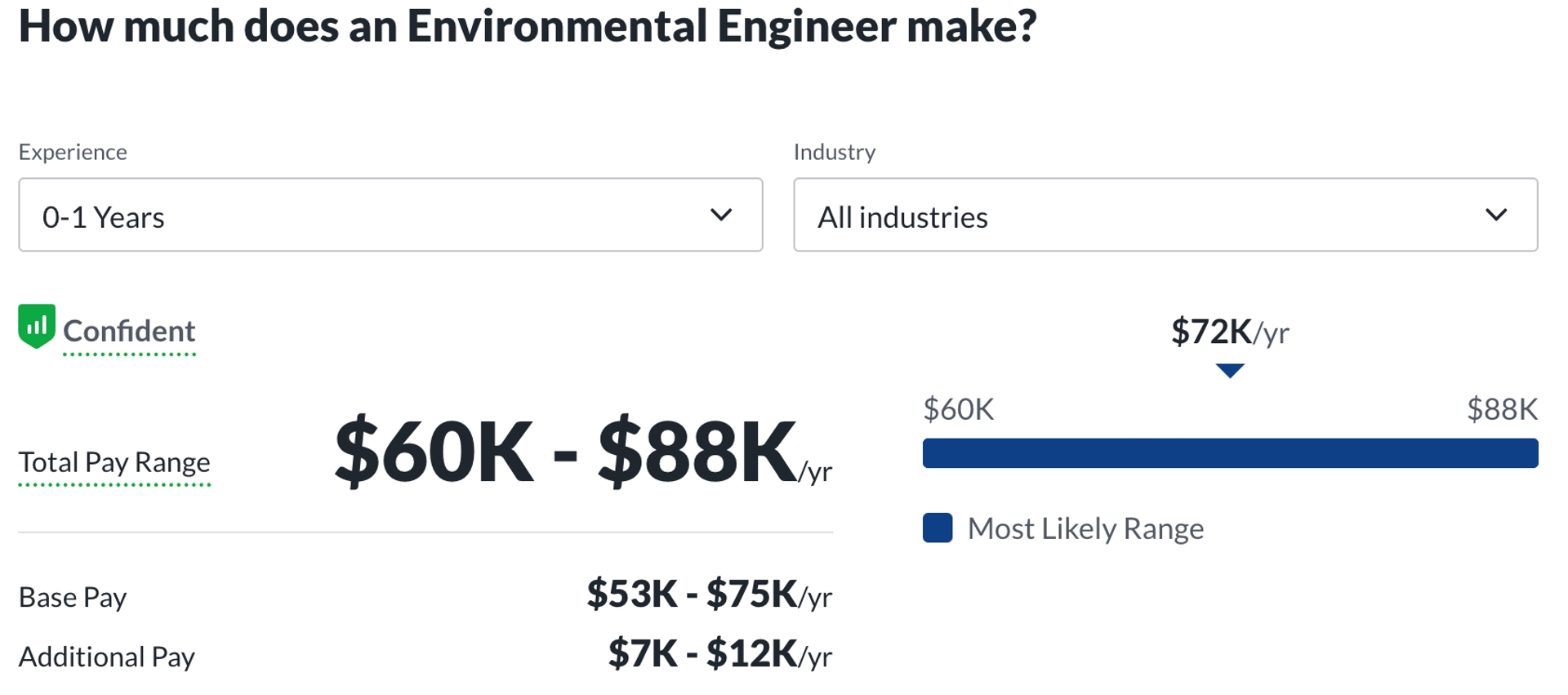
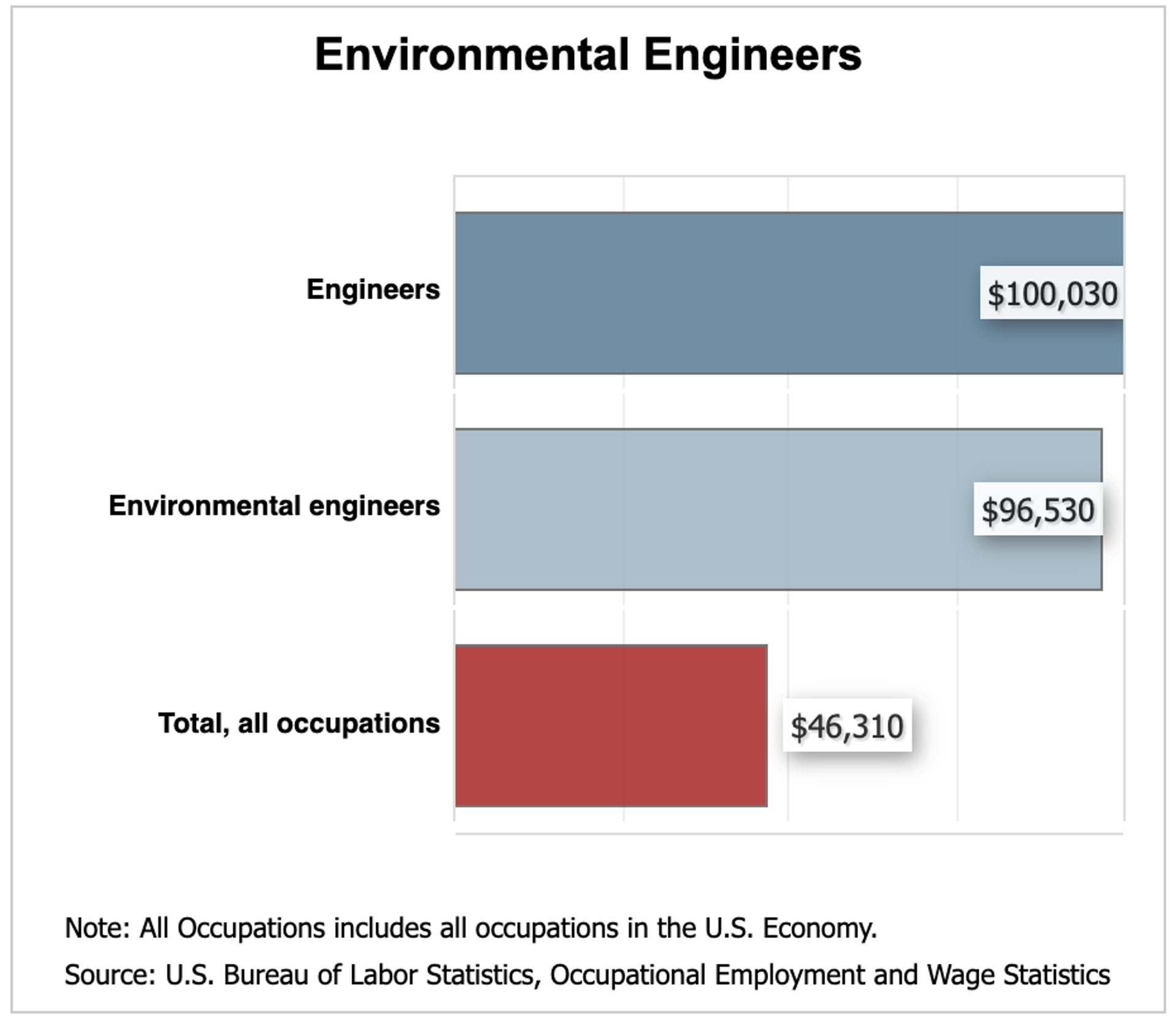
Employment of environmental engineers is projected to grow 6 percent by 2032, faster than the average for all occupations.
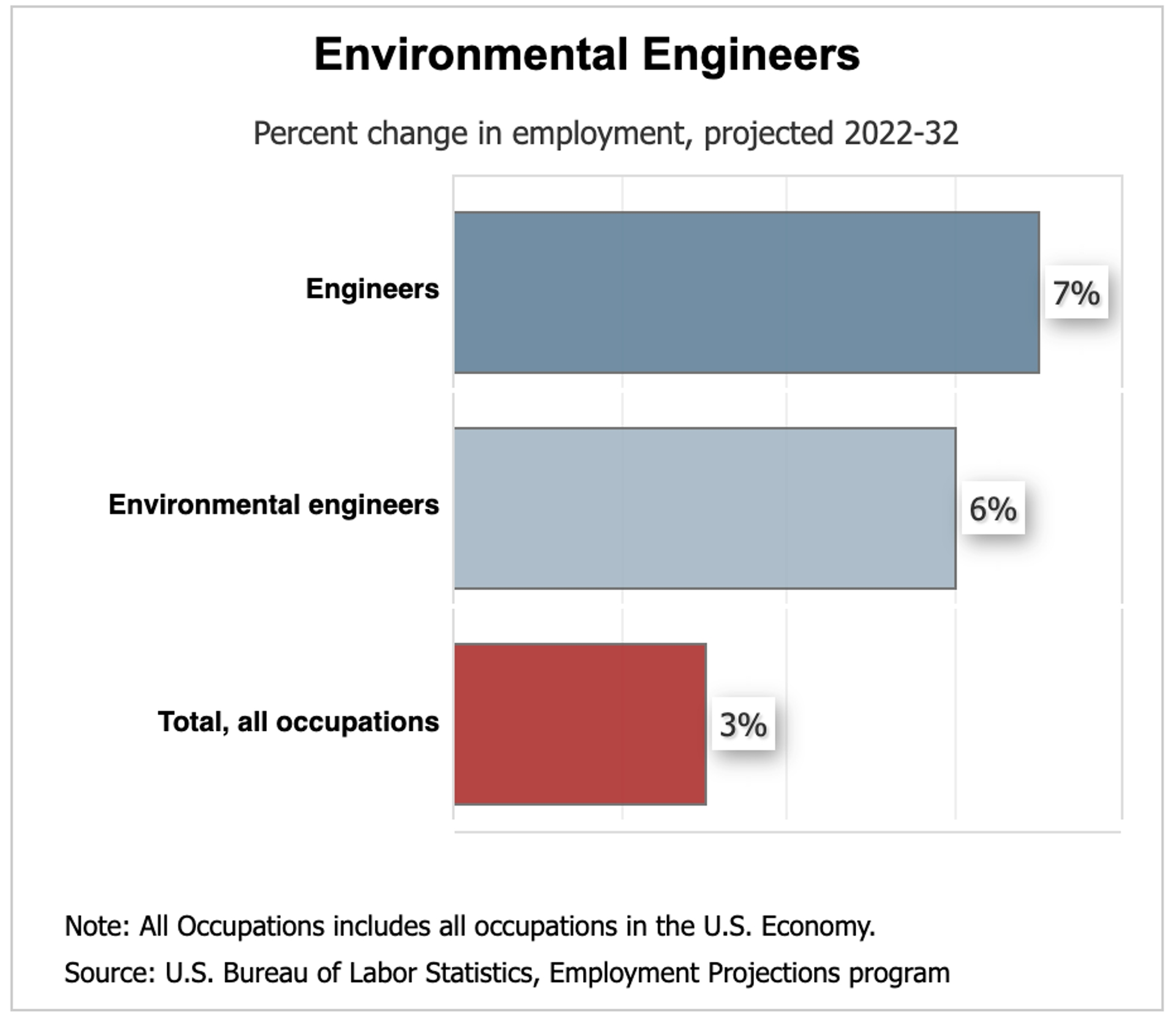
Heightened public awareness of the hazards facing the environment is expected to support demand for environmental engineers. For example, these workers are expected to be needed to help design solutions to improve water and air quality amid growing concerns about pollution and the lack of access to clean drinking water across the country.
# Number 17: Industrial Engineering
Number 17 belongs to Industrial Engineering, where starting salaries hover around $65,000, escalating to $96,350.
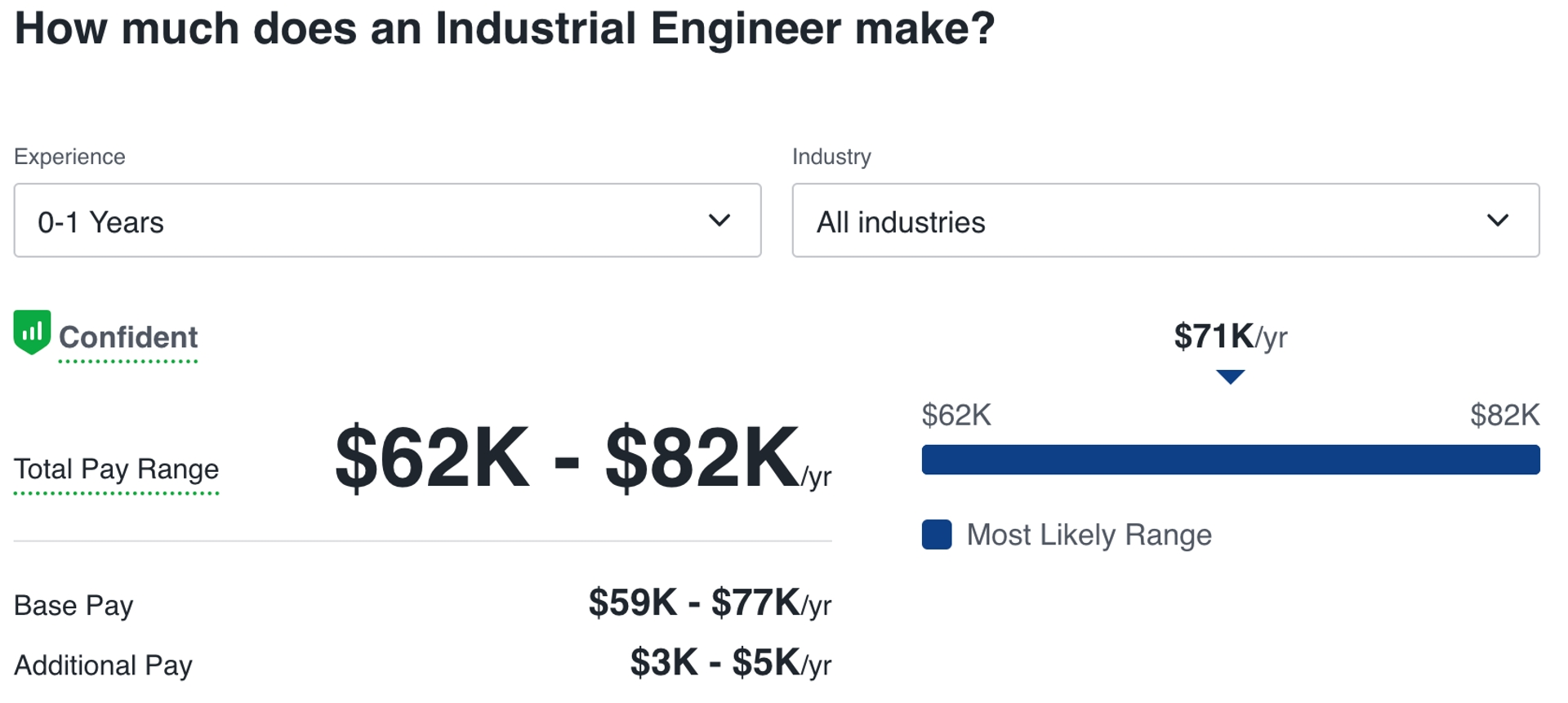
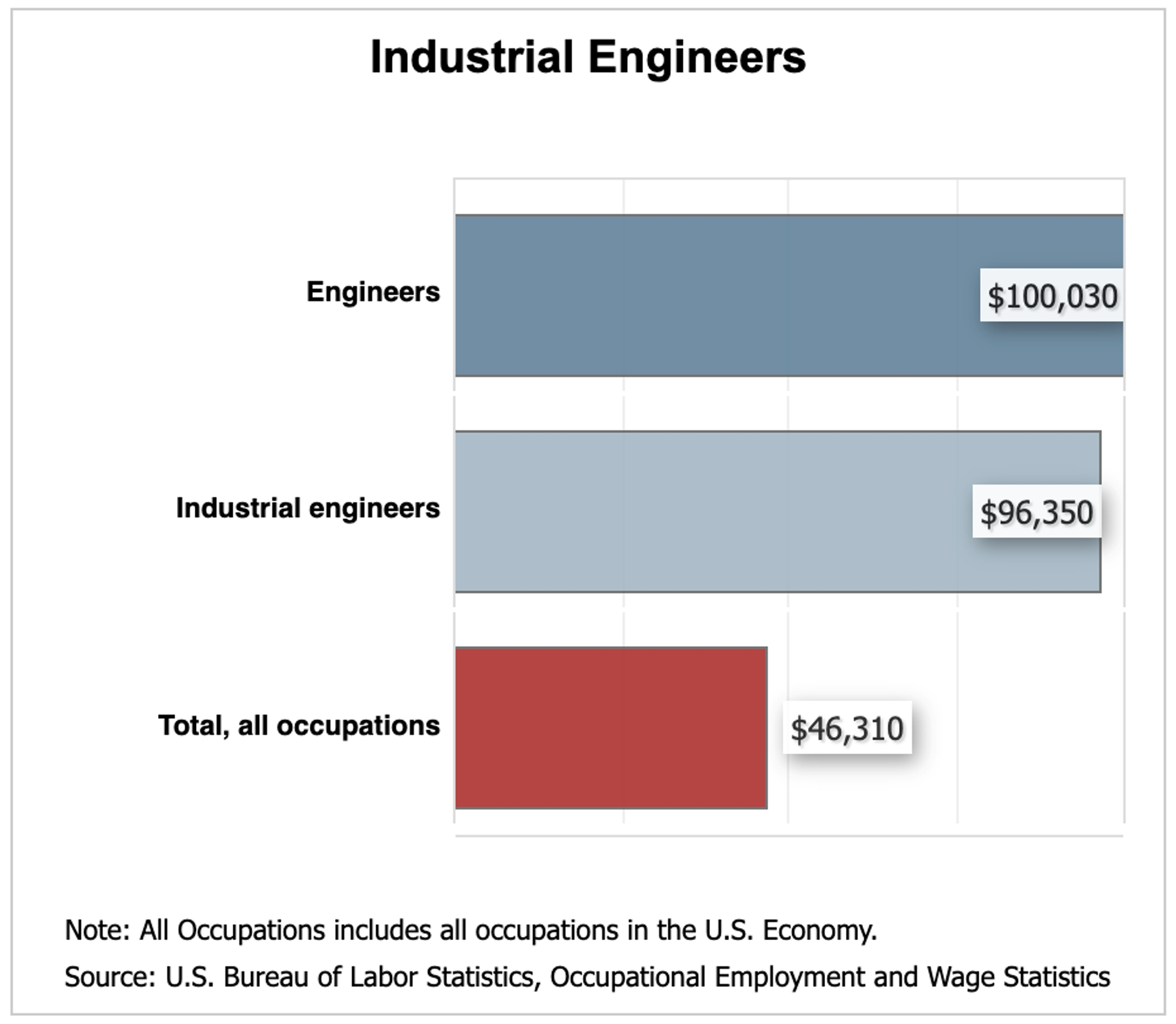
Employment of industrial engineers is projected to grow 12 percent by 2032, much faster than the average for all occupations.
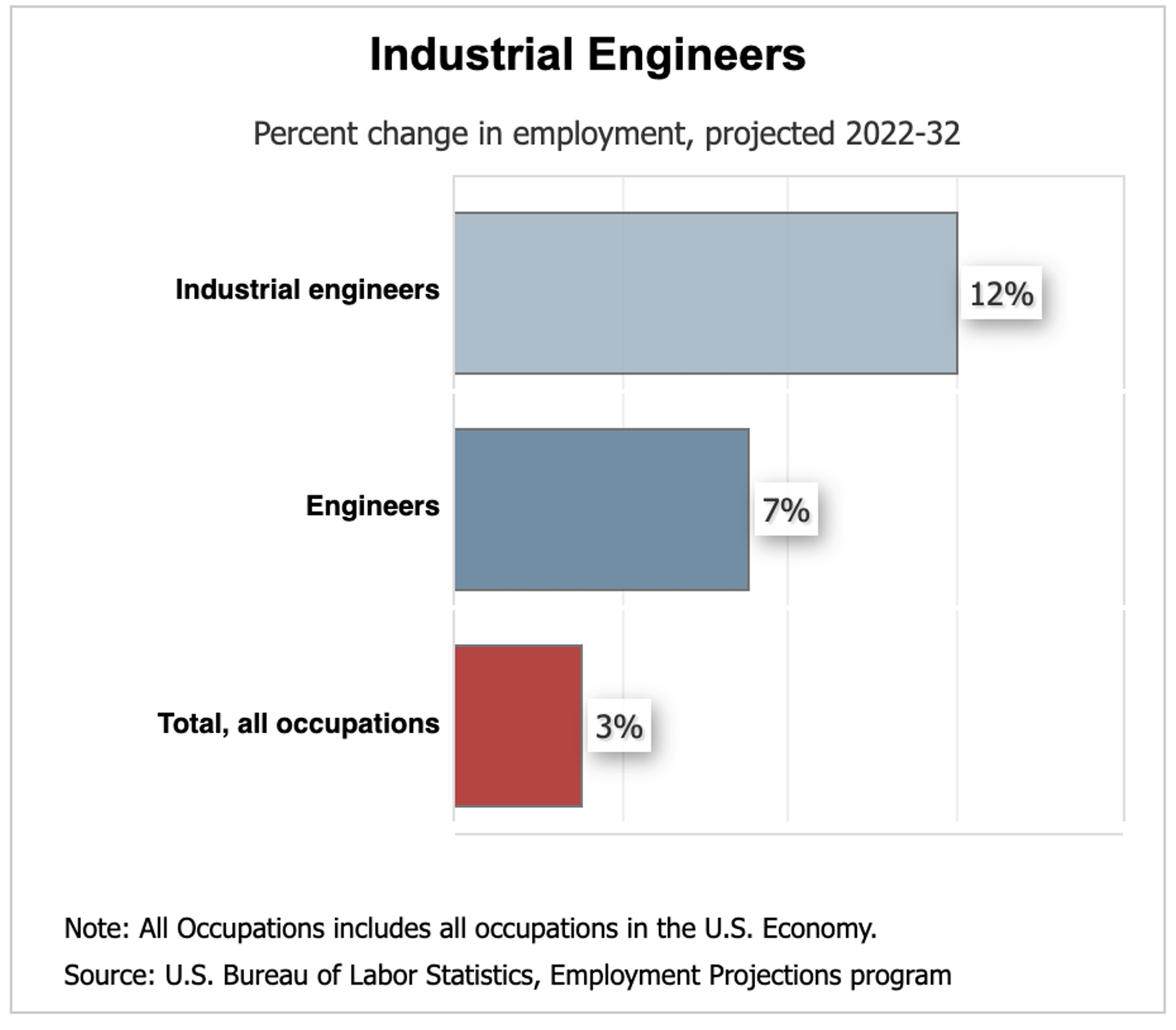
Industrial engineers focus on reducing internal costs, making their work valuable in manufacturing and other industries, such as consulting and engineering services and research and development firms. As more companies look to lower costs, demand is expected to increase for industrial engineers to optimize production processes, manage supply chains and logistics, and provide expertise on automation.
# Number 16: Civil Engineering
At number 16, Civil Engineering. With starting salaries at $65,000 and average figures reaching $89,940.
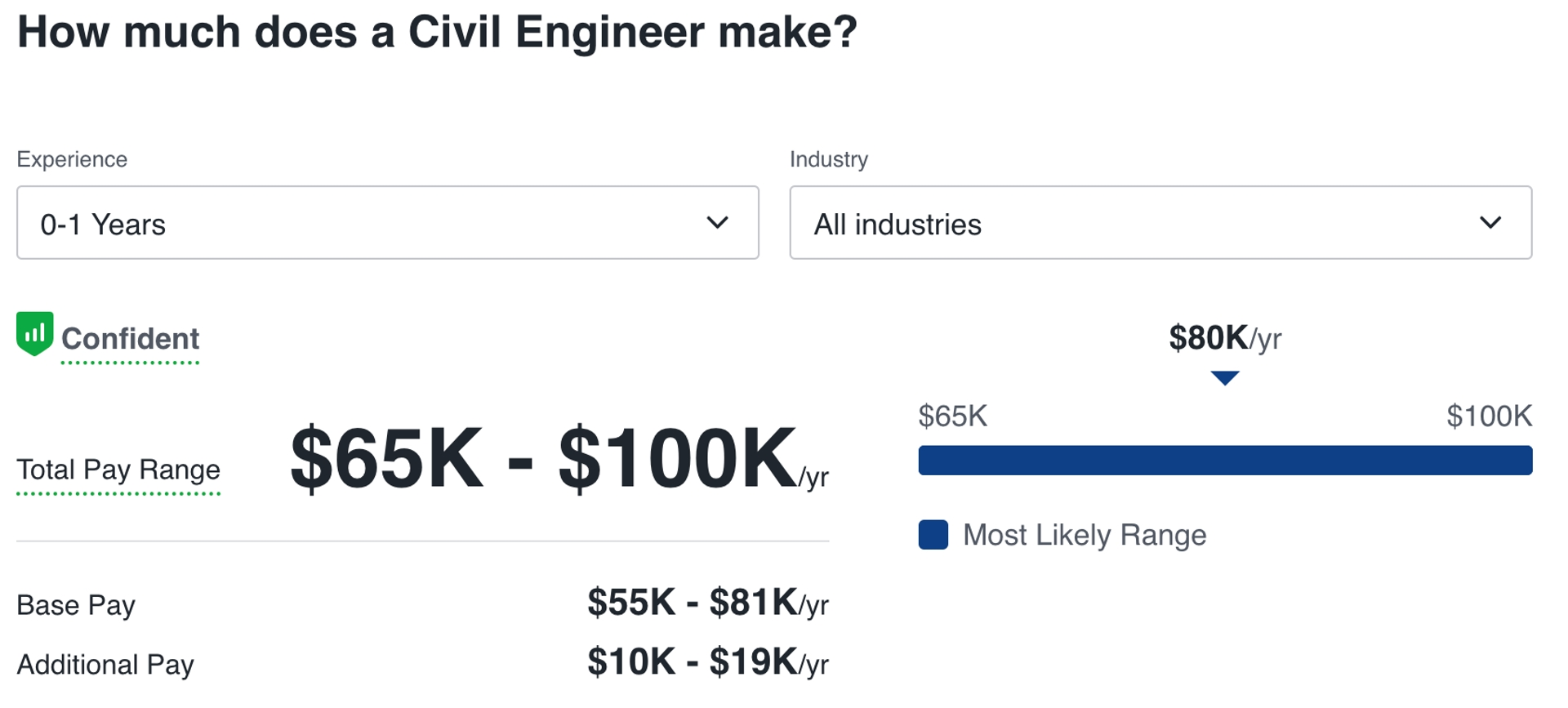
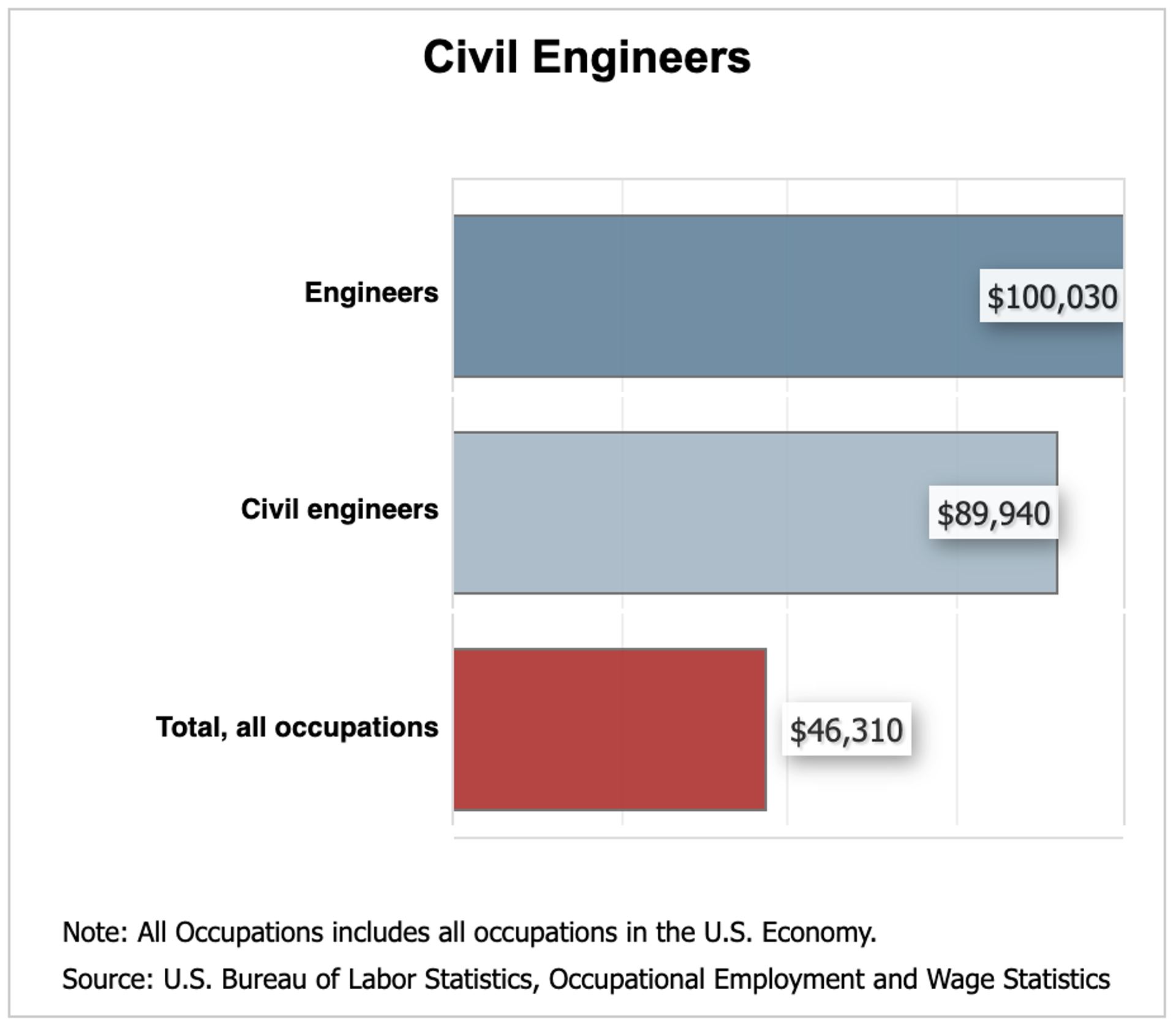
It's employment is projected to grow 5 percent (15) in the next 10 years.
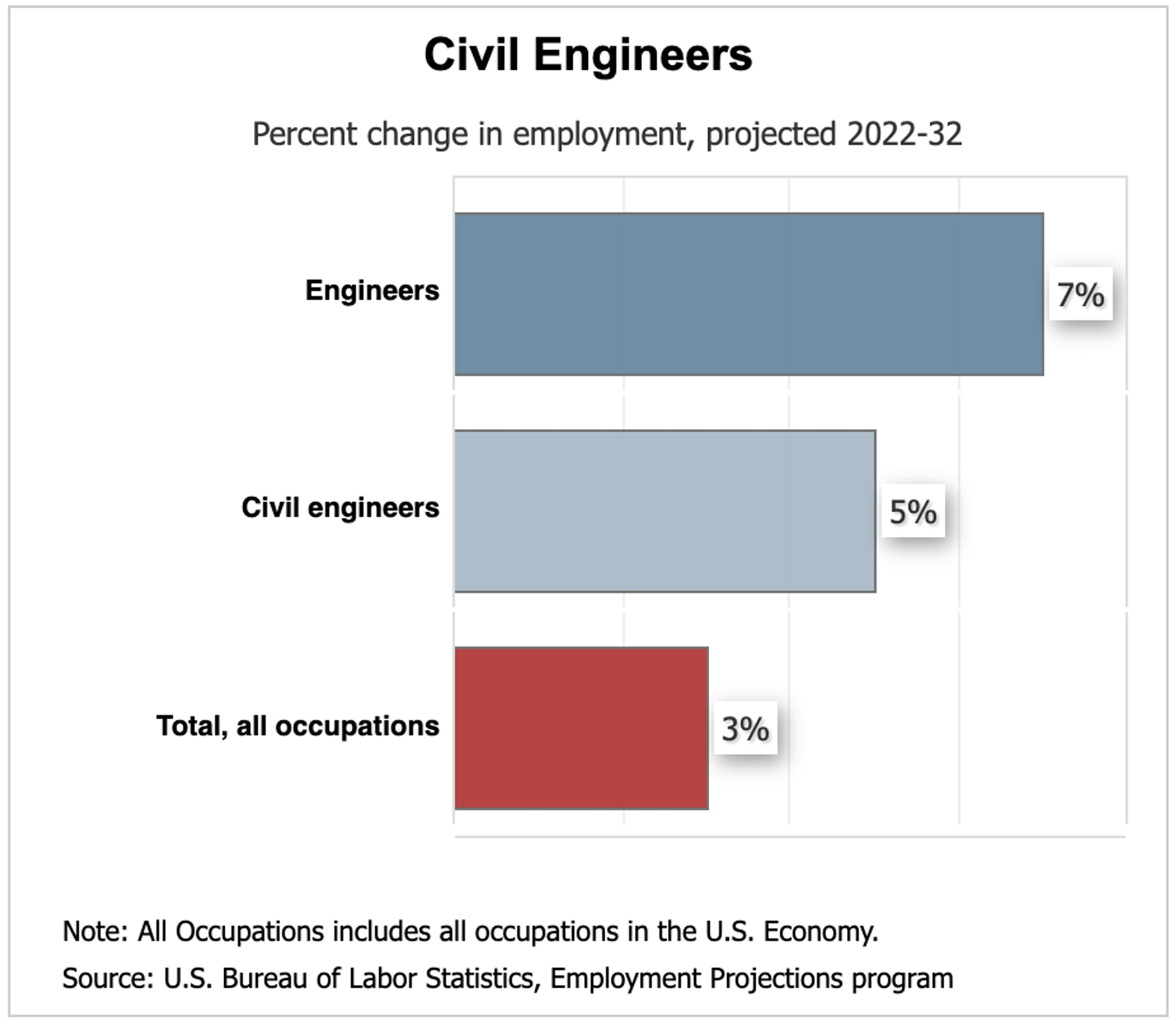
# Number 15: Biomedical Engineering
Biomedical Engineering claims the 15th place. Starting at $66,000 and advancing to $99,550.
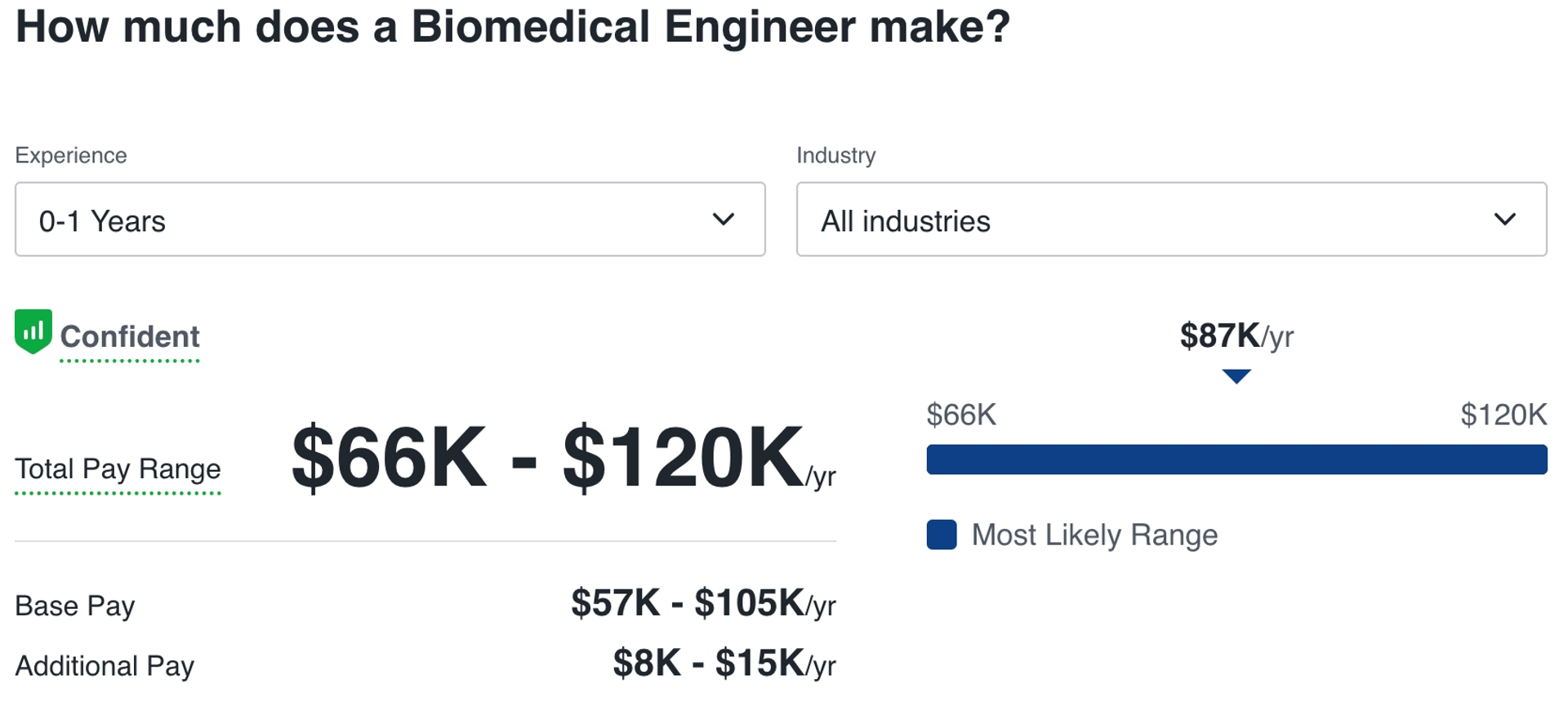
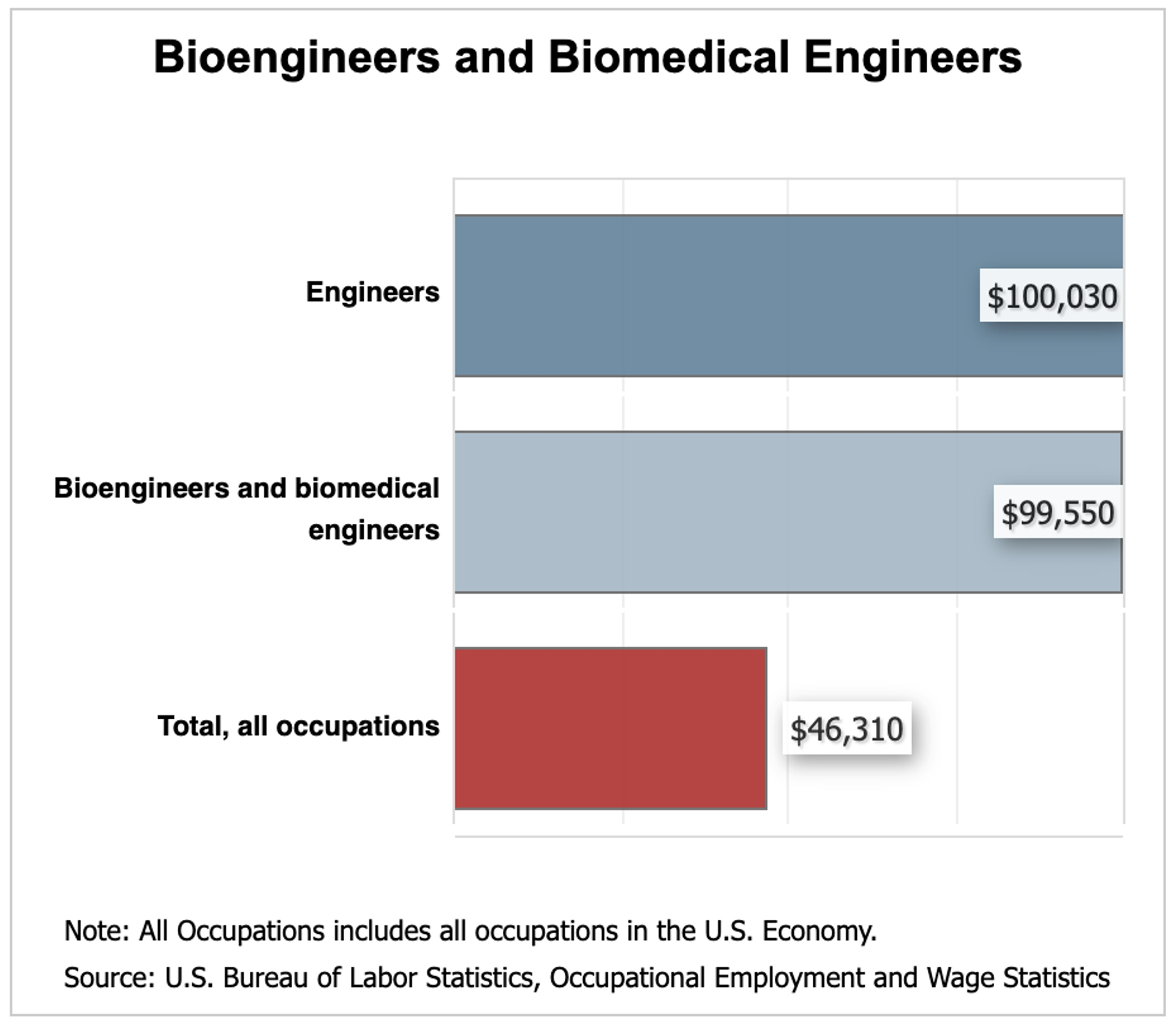
This field merges healthcare and engineering, with a growth expectation of 5%.
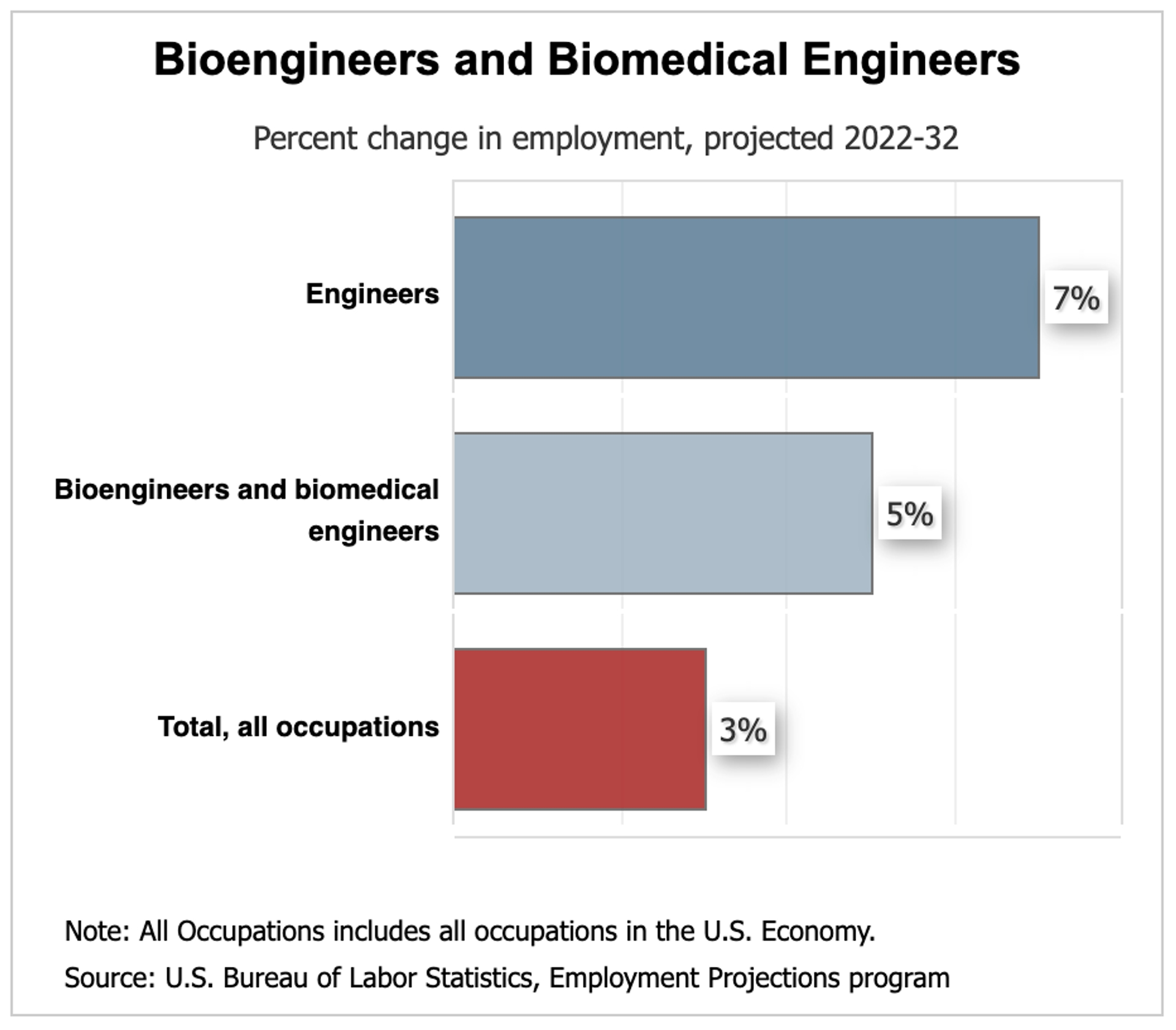
Bioengineers and biomedical engineers are expected to see employment growth as demand for biomedical devices and procedures, such as hip and knee replacements, continues to increase. In addition, with continued public awareness of medical advances, increasing numbers of people will seek biomedical solutions to their health problems.
# Number 14: Computer Systems Engineering
Computer Systems Engineering claims the spot at number 14. Starting salaries for systems engineers are around $68,000, with the potential to grow to $102,240 for those with more experience.
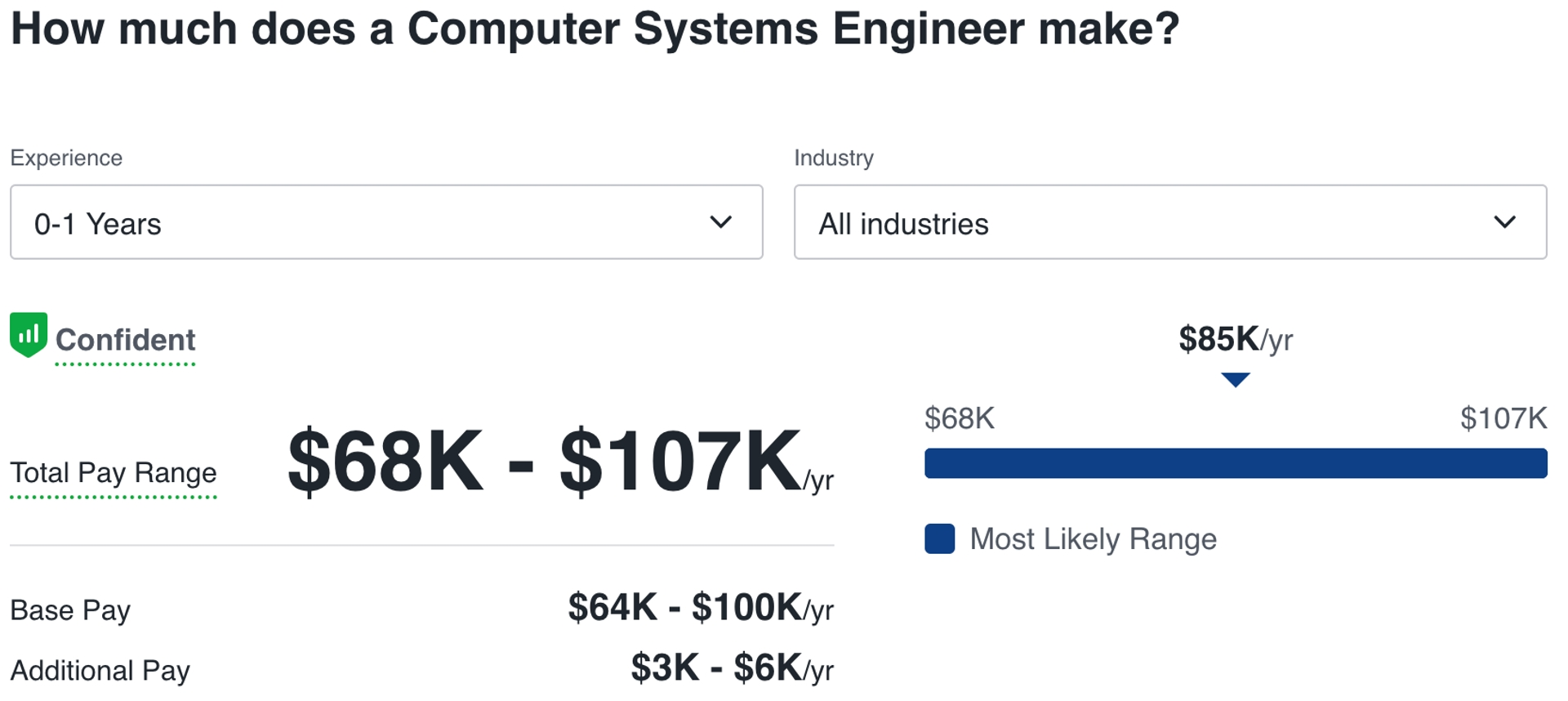
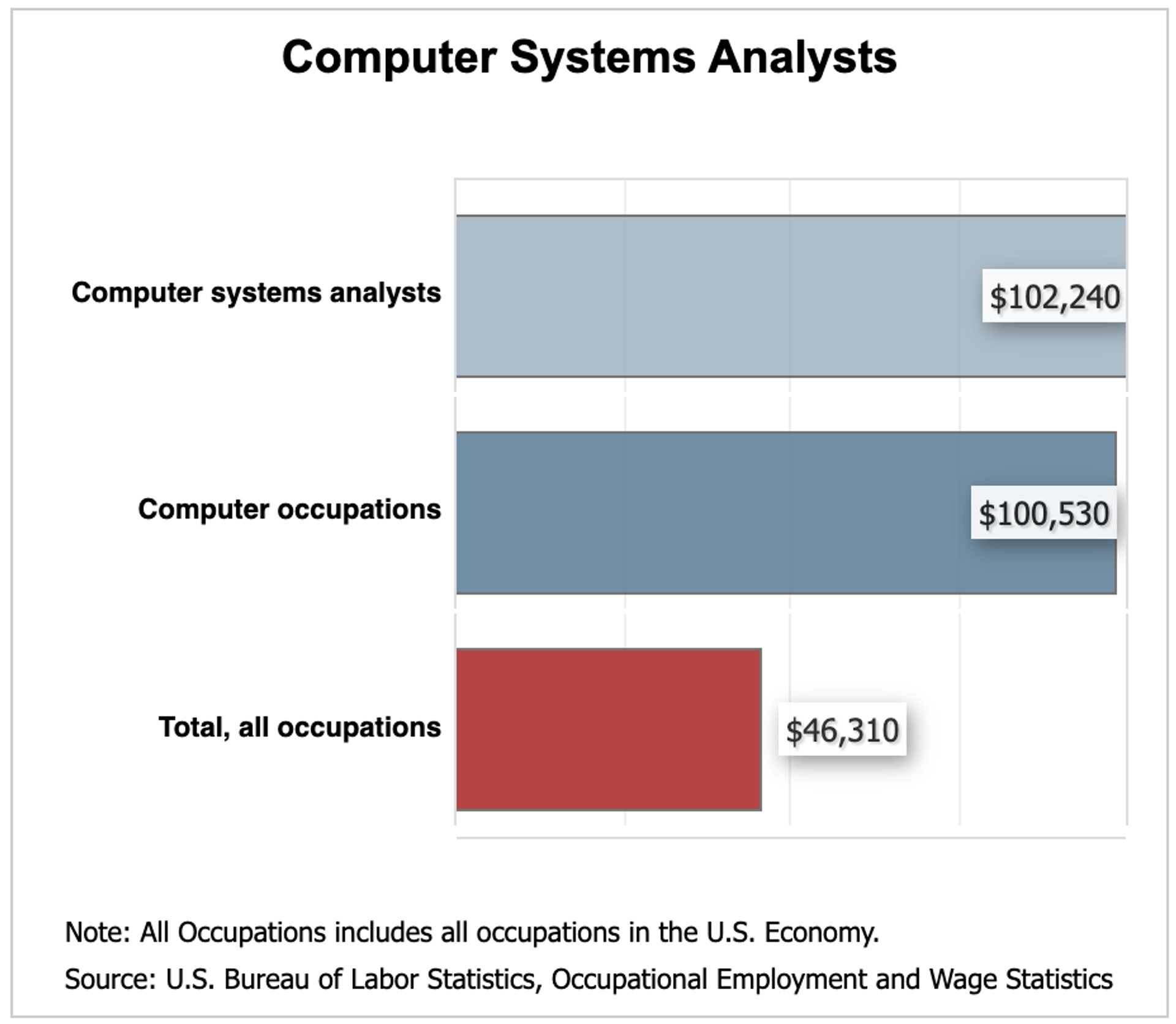
Employment of computer systems analysts is projected to grow 10 percent by 2032, much faster than the average for all occupations.
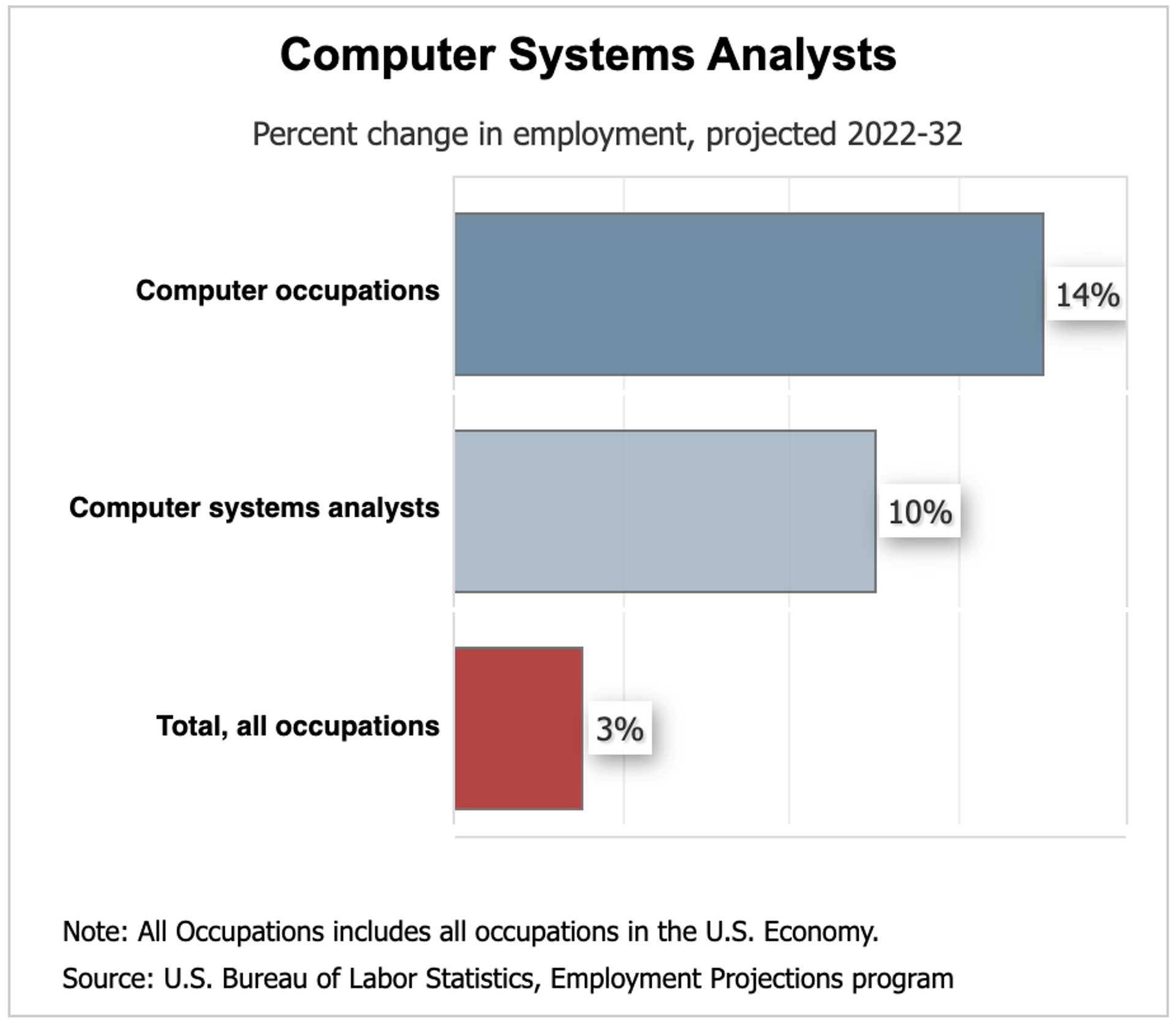
As organizations across the economy continue to rely on information technology (IT), computer systems analysts will be hired to design and install new computer systems. Small firms with minimal IT requirements will find it more cost effective to contract with outside firms for these services rather than to hire computer systems analysts directly.
Computer Science, closely tied with Computer Systems Engineering, especially popular at institutions like the University of California, California Institute of Technology, Massachusetts Institute and Georgia Institute of Technology, the University of Michigan, offers opportunities reflecting a growing trend.
# Number 13: Mechanical Engineering
Mechanical Engineering, my profession, is up next at number 13. A cornerstone of engineering, with starting salaries of around $69,000 and average earnings of $96,310, it anticipates a 10% growth.
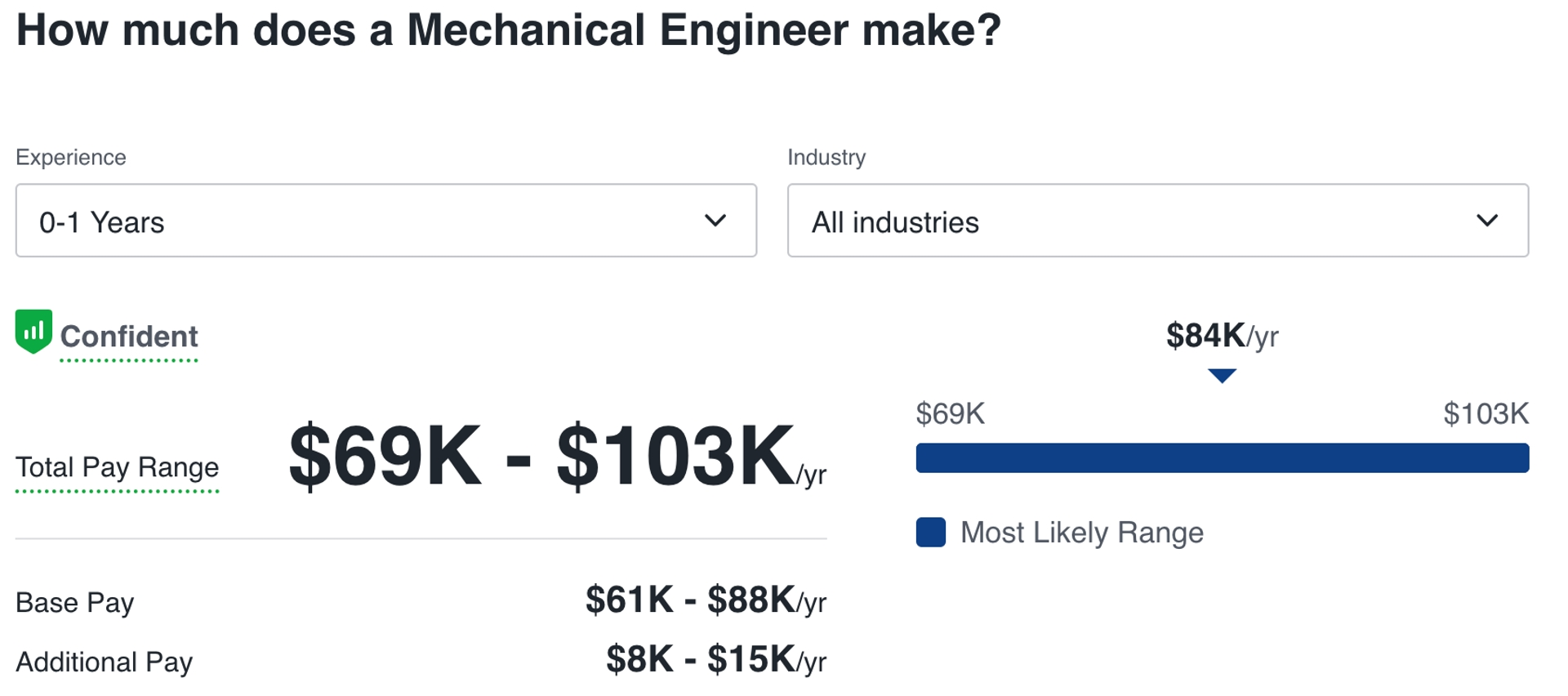
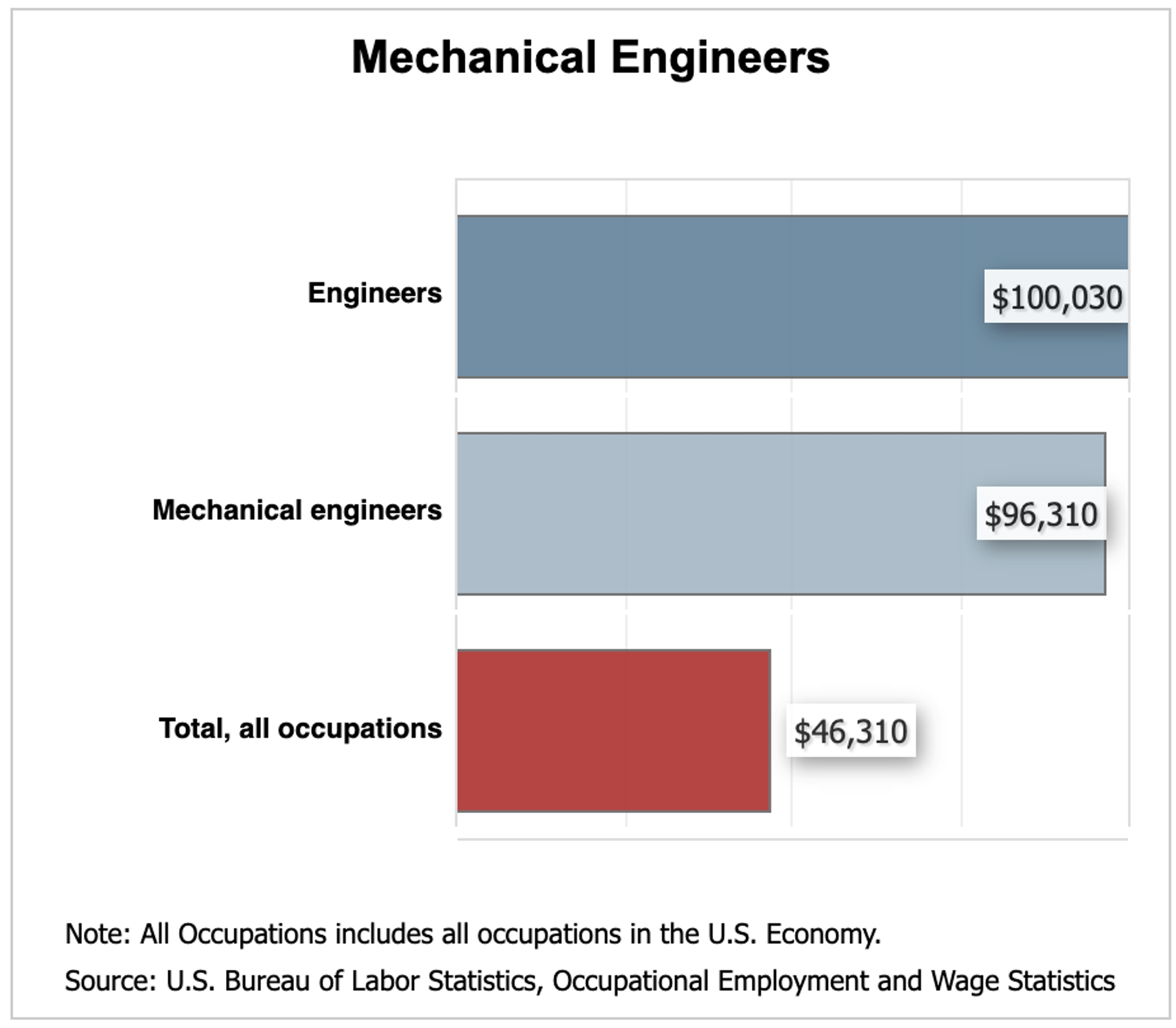
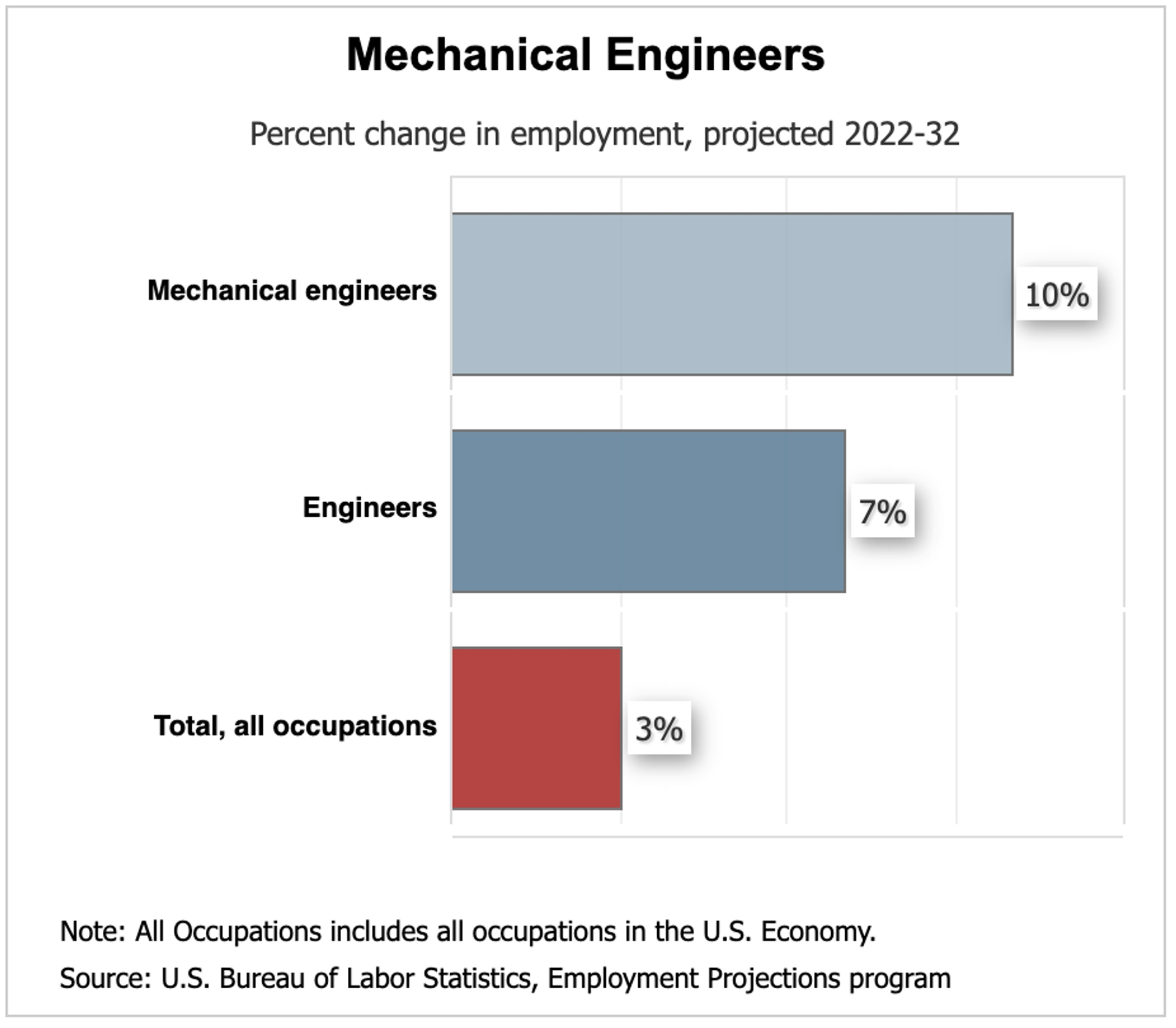
Mechanical engineers work in a range of industries and on many types of projects. As a result, employment growth for these workers varies by industry.
As manufacturing processes incorporate more complex automation machinery, mechanical engineers are expected to be needed to help plan for and design this equipment.
# Number 12: Electrical Engineering
Number 12 is for Electrical Engineering. Fundamental to countless sectors, Electrical Engineers can expect $75,000, climbing to $103,320 on average.
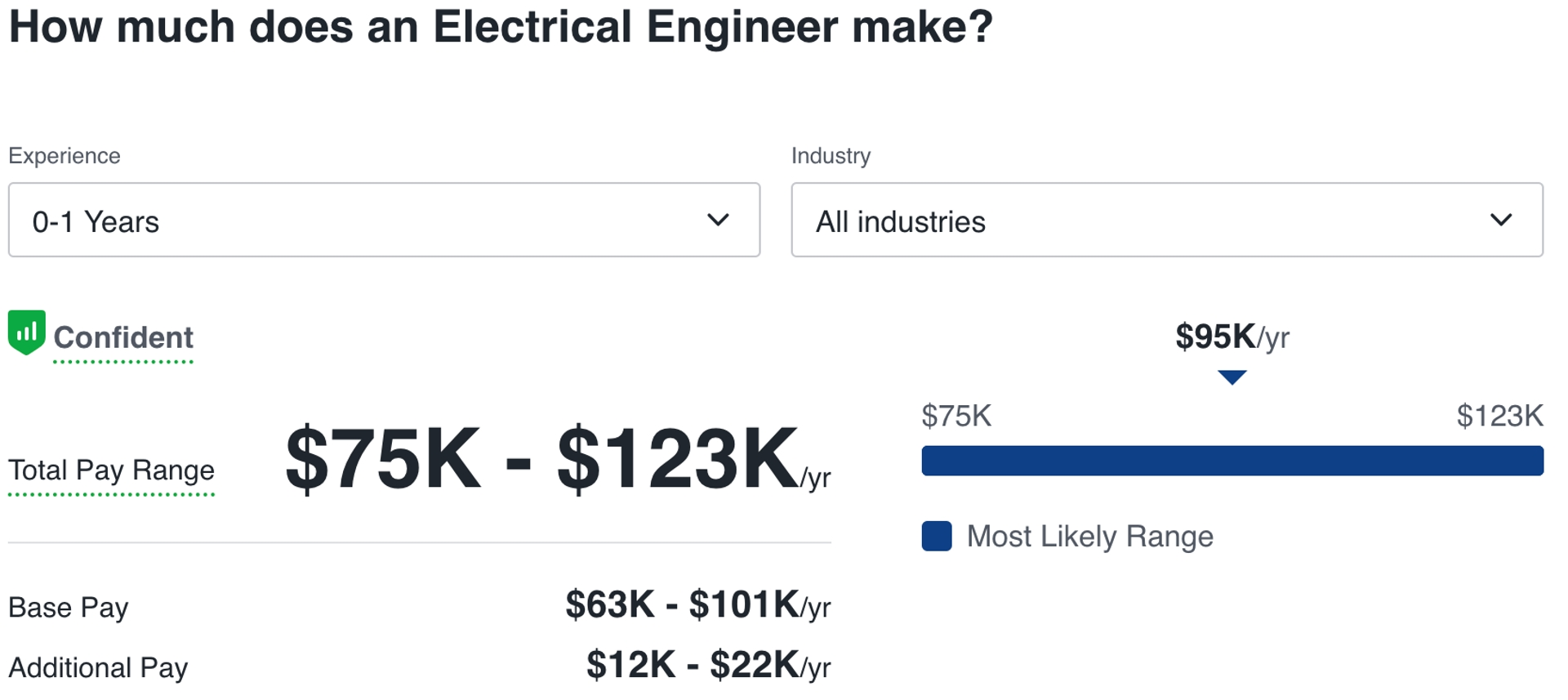
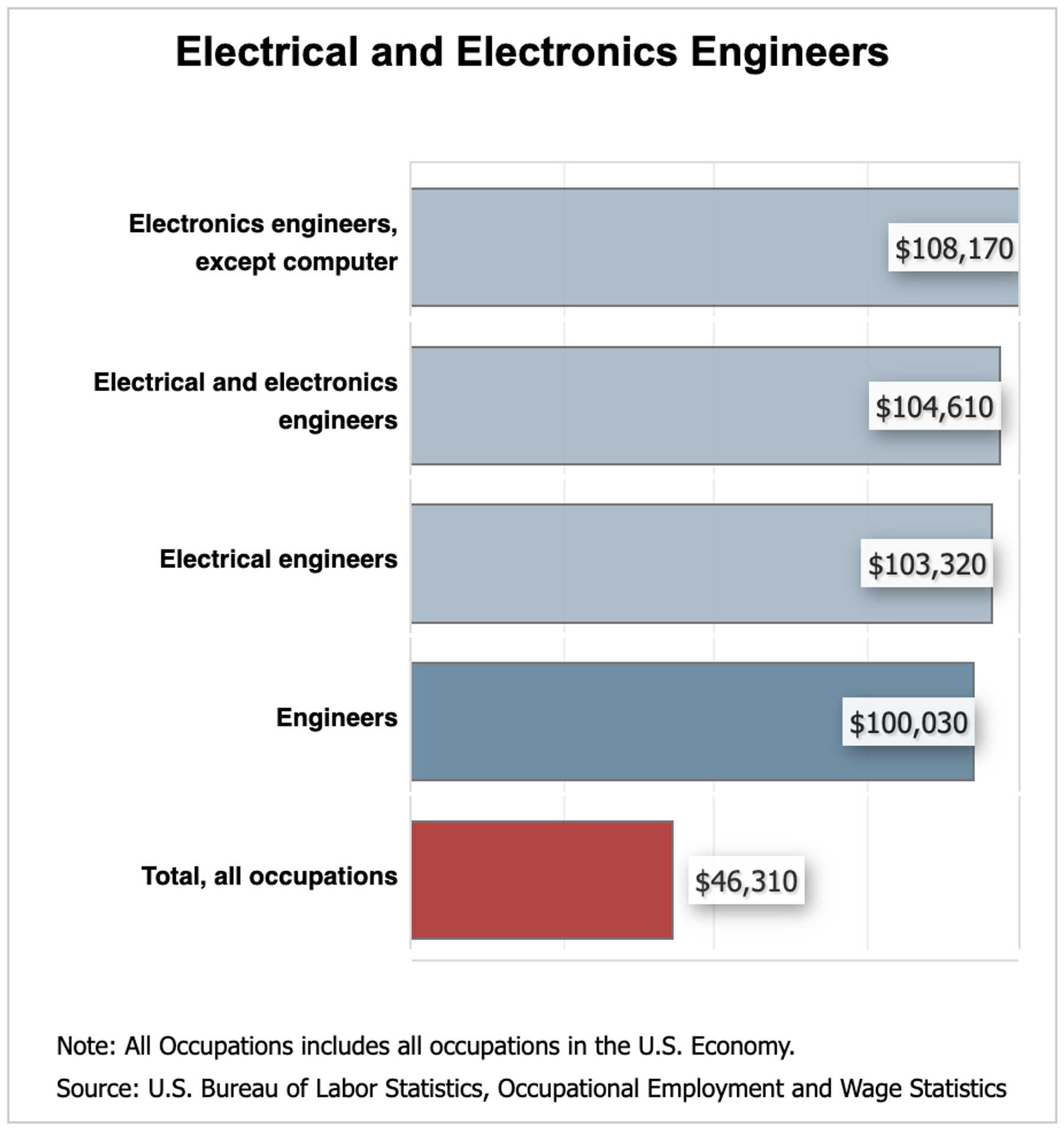
Overall employment of electrical and electronics engineers is projected to grow 5 percent by 2032, faster than the average for all occupations.
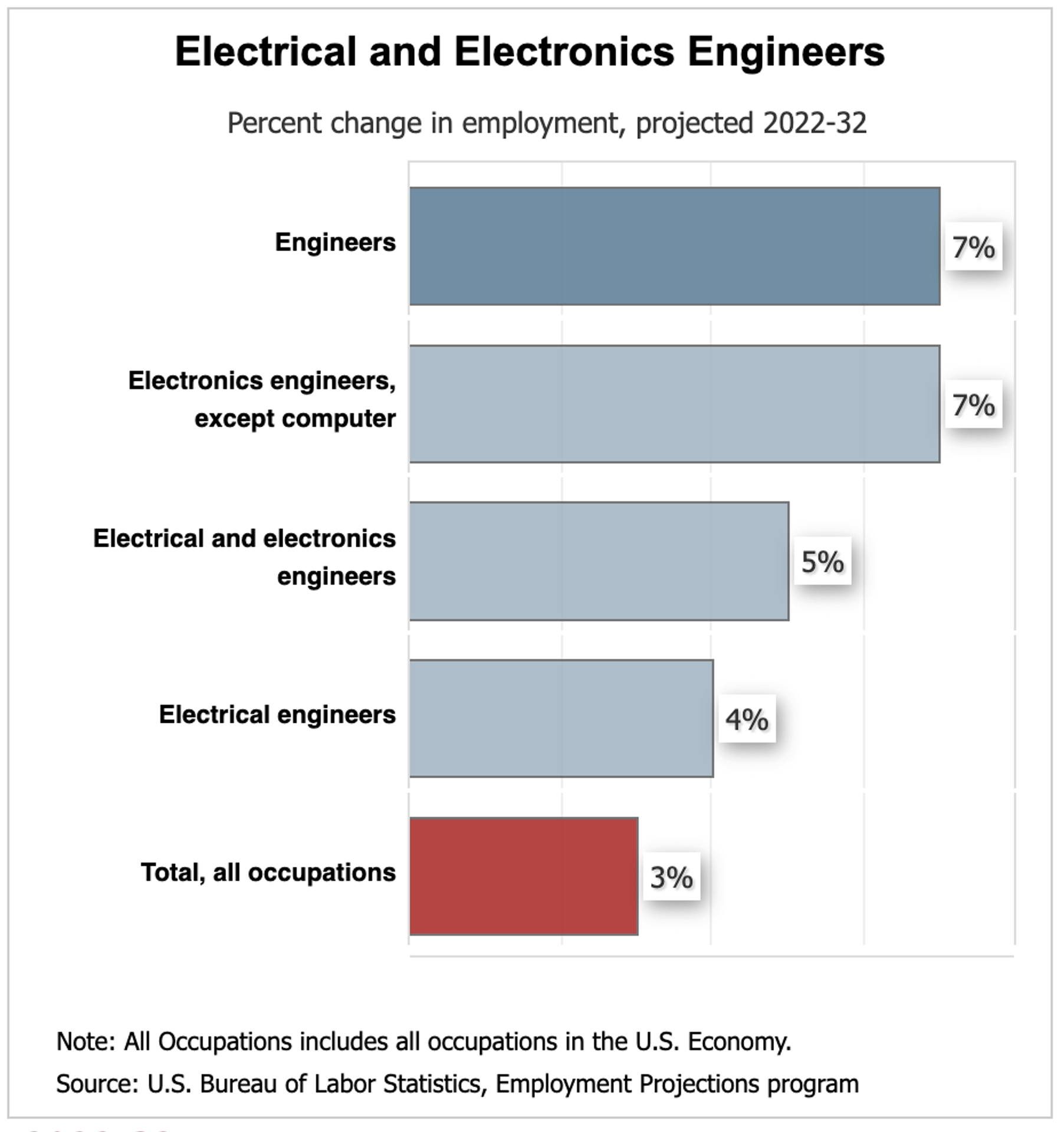
Some employment growth is expected as companies continue to utilize the expertise of engineers for projects involving electronic devices and systems. These engineers are expected to have key roles in developing sophisticated consumer electronics, solar arrays, semiconductors, and communications technologies.
# Number 11: Chemical Engineering
Chemical Engineering stands at number 11. Key to pharmaceuticals, energy, and more, it starts at $59,000, but reaches $106,260 on average, with an 8% growth projection, driven by the need for sustainable energy and material solutions.
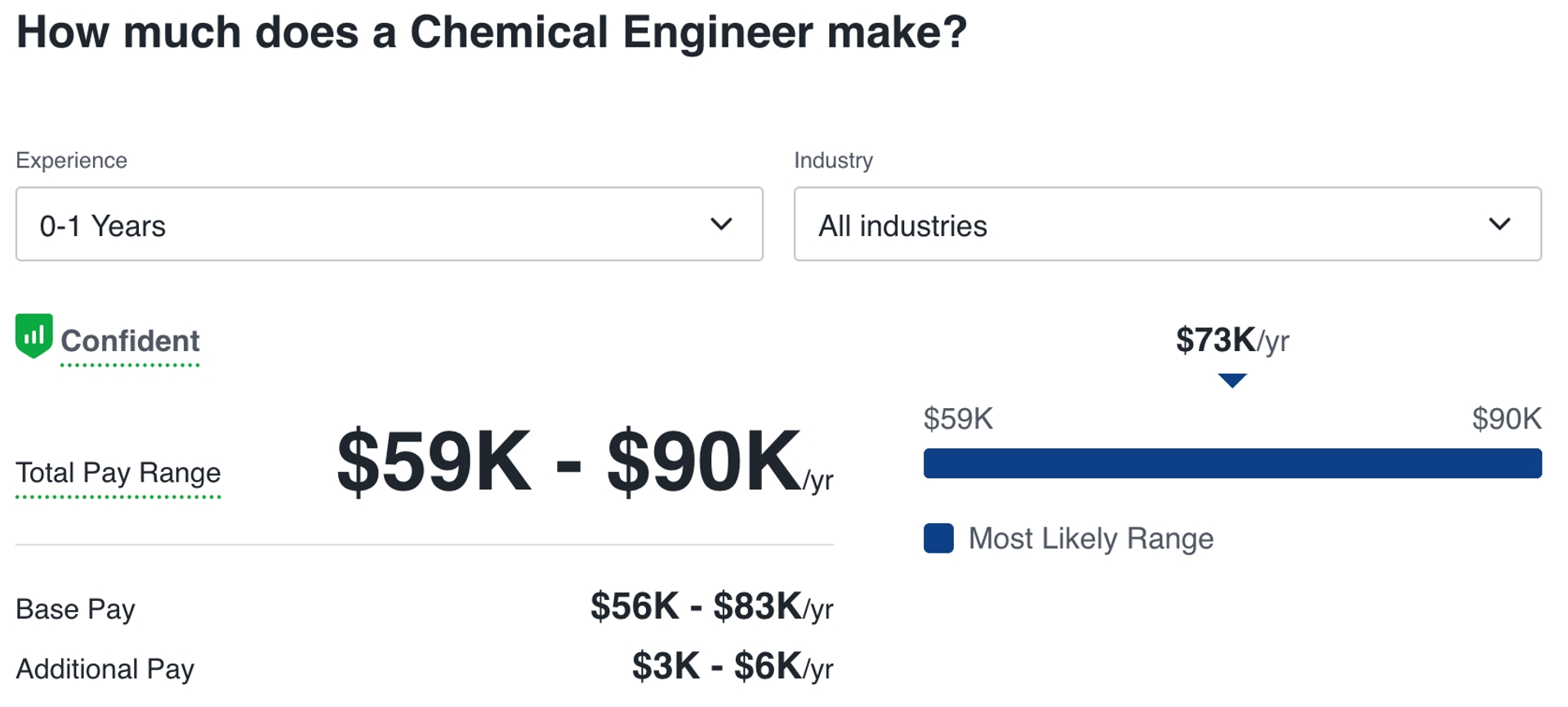
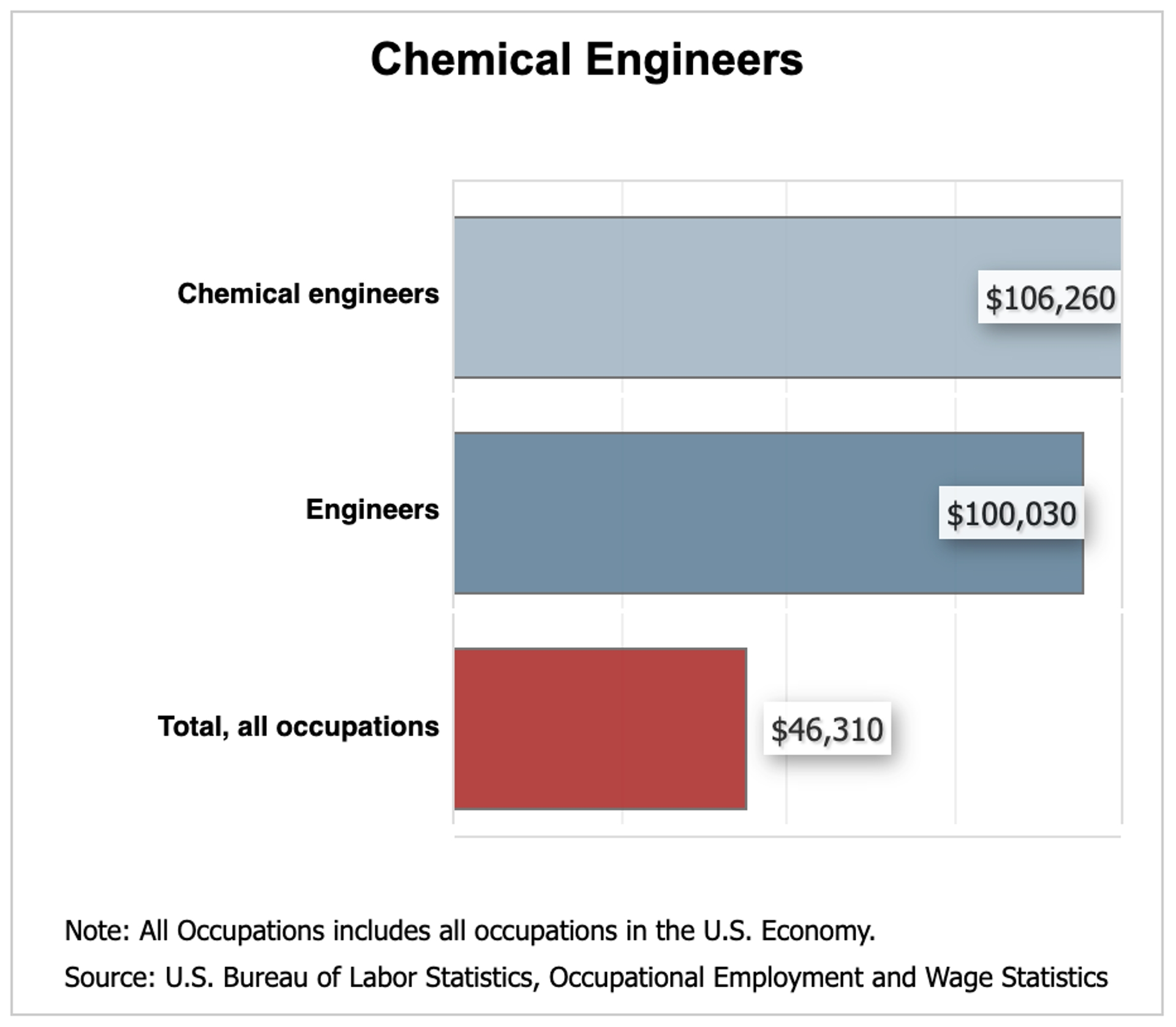
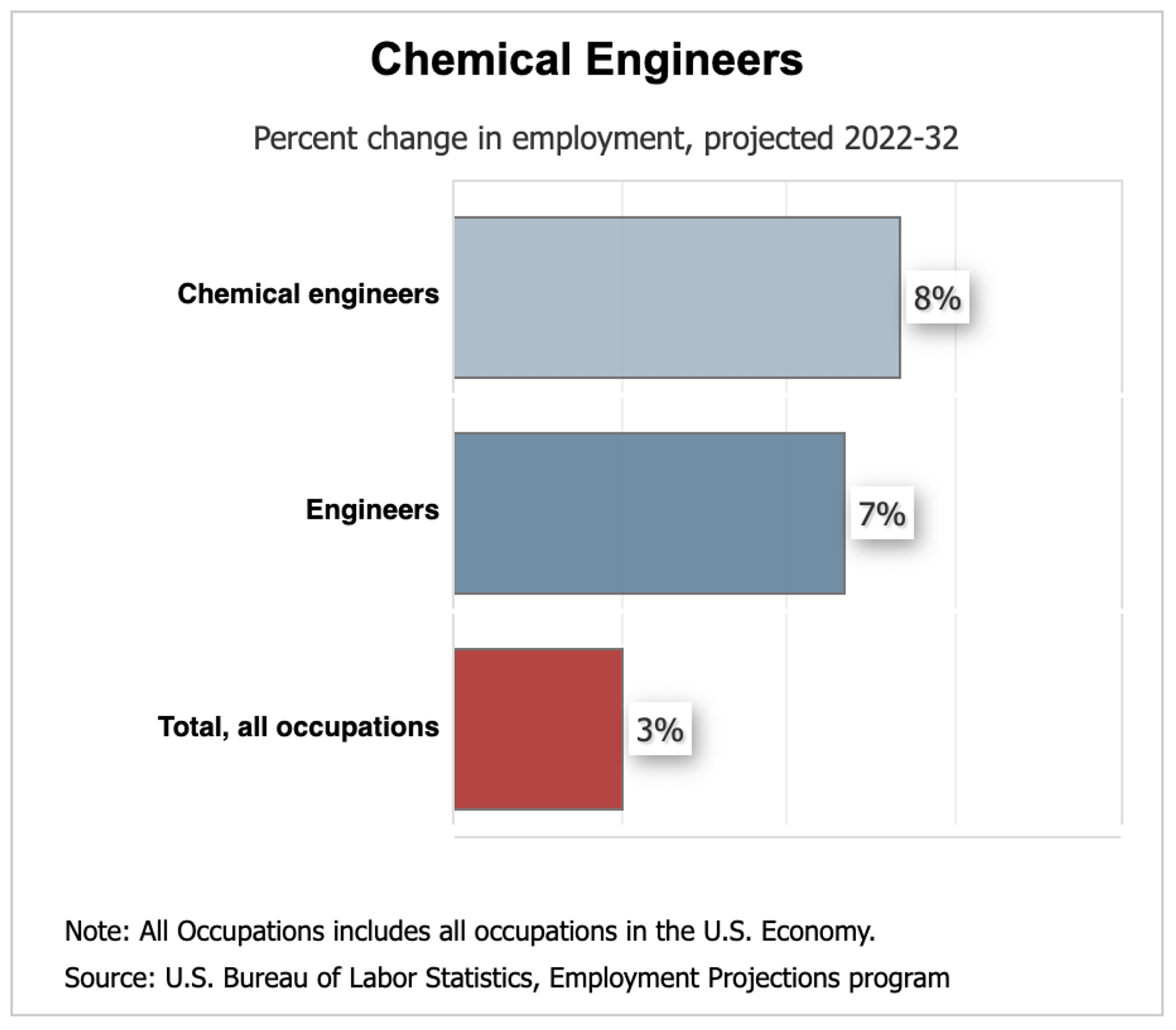
In addition, demand for these workers will continue with chemical engineering’s migration into nanotechnology, alternative energies, biotechnology, and other fields.
# Number 10: Aerospace Engineering
At number 10, Aerospace Engineering takes flight. Starters earning $73,000 can ascend to $126,880, with a projected growth rate of 6%.
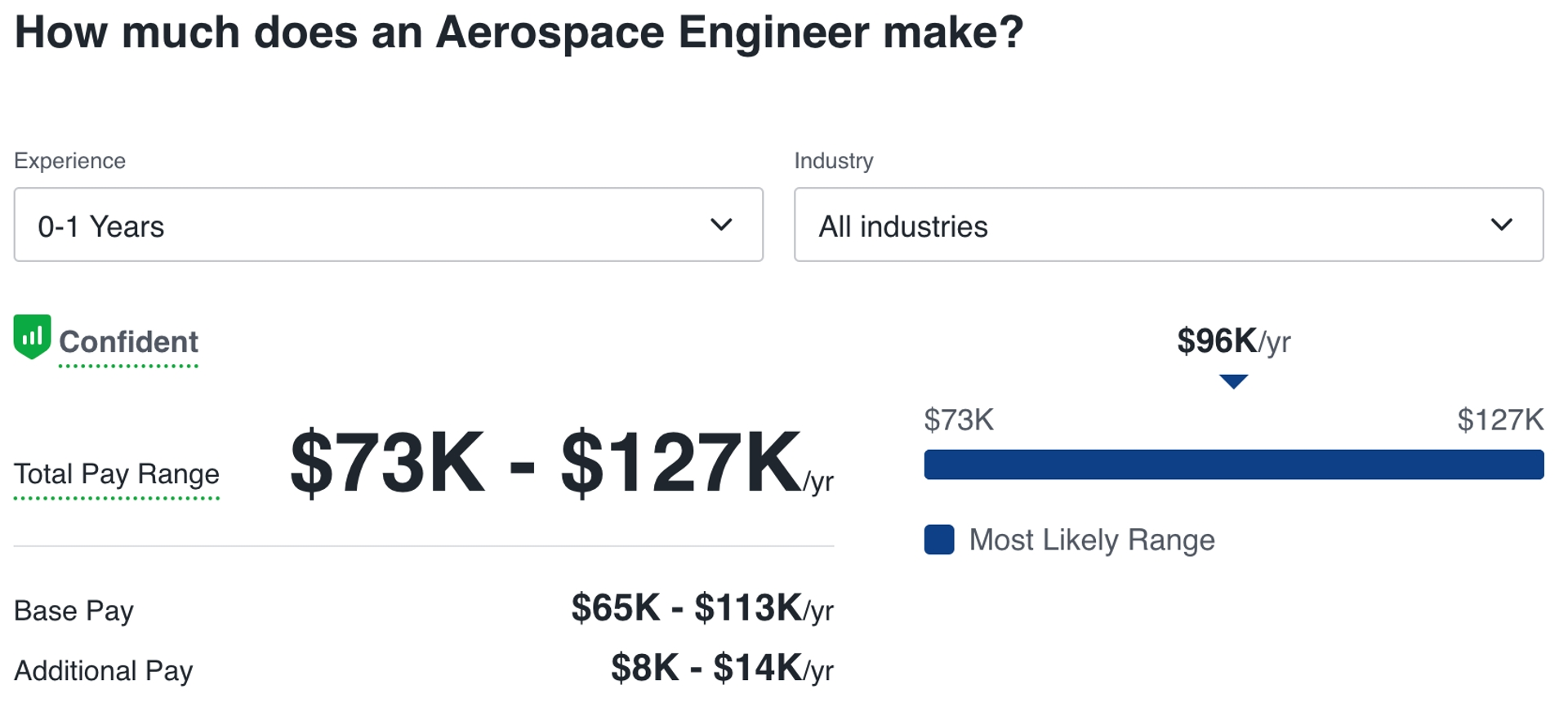
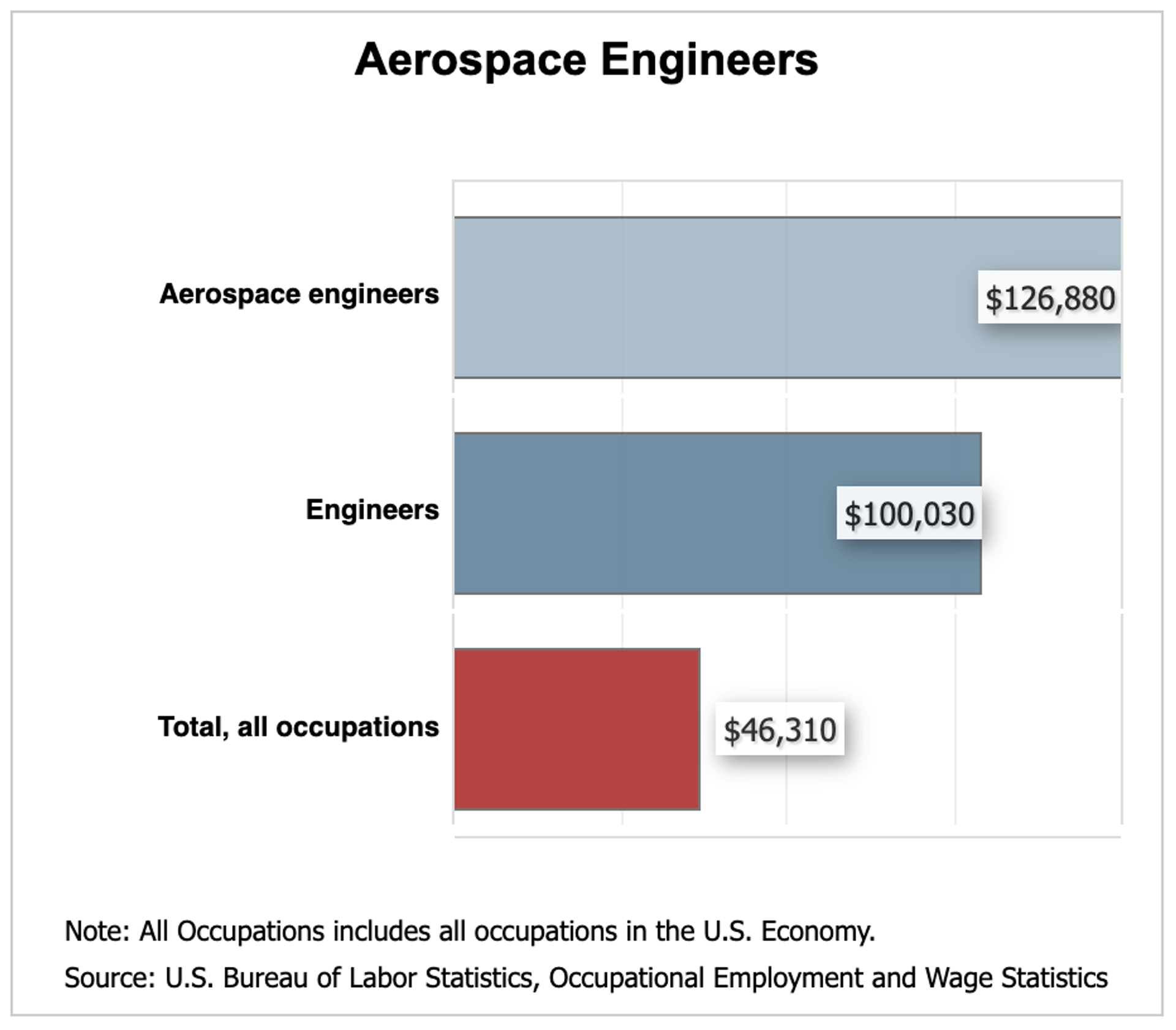
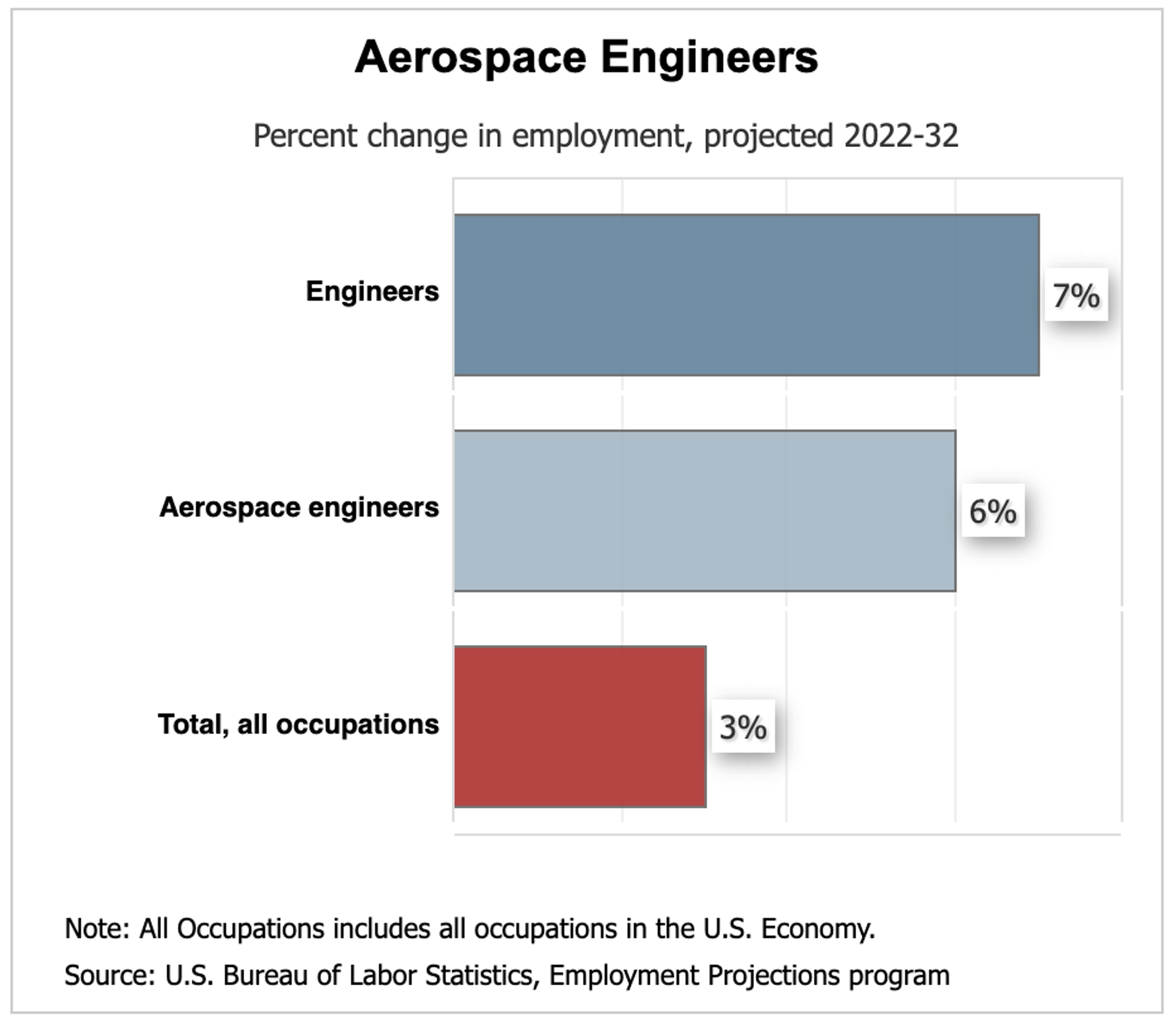
Aircraft are being redesigned for less noise pollution and better fuel efficiency, which should help drive demand for aerospace engineers.
Technological advancements have reduced the cost of launching satellites. Demand for aerospace engineers is expected to increase as space becomes more accessible, especially work with developments in small satellites that have greater commercial viability. In addition, continued interest in drones for certain uses, such as forest fire detection, may help to drive employment growth for these engineers.
# Number 9: Computer Hardware Engineering
Computer Hardware Engineering claims the 9th spot. In the tech heartland, starting salaries are around $52,000, with potential soaring to $132,360.
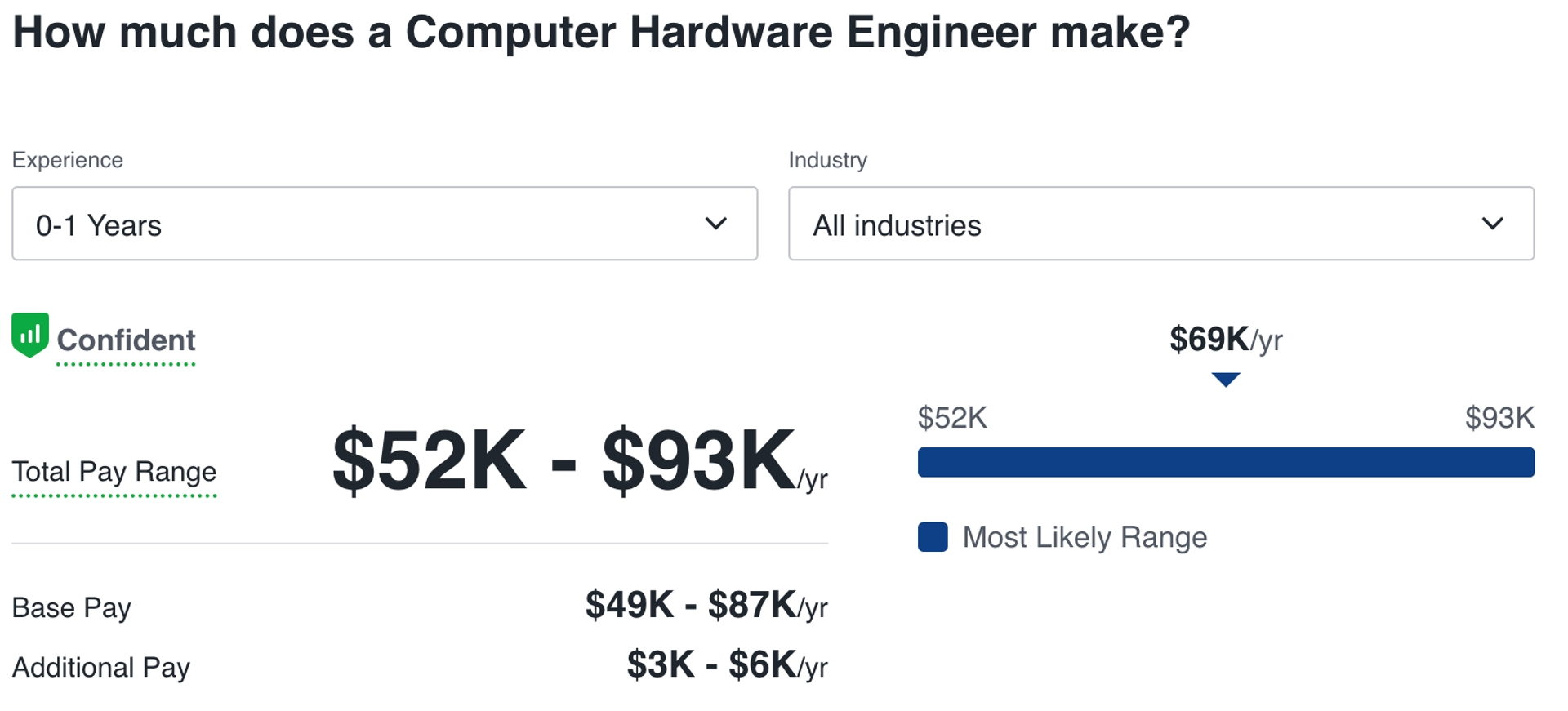
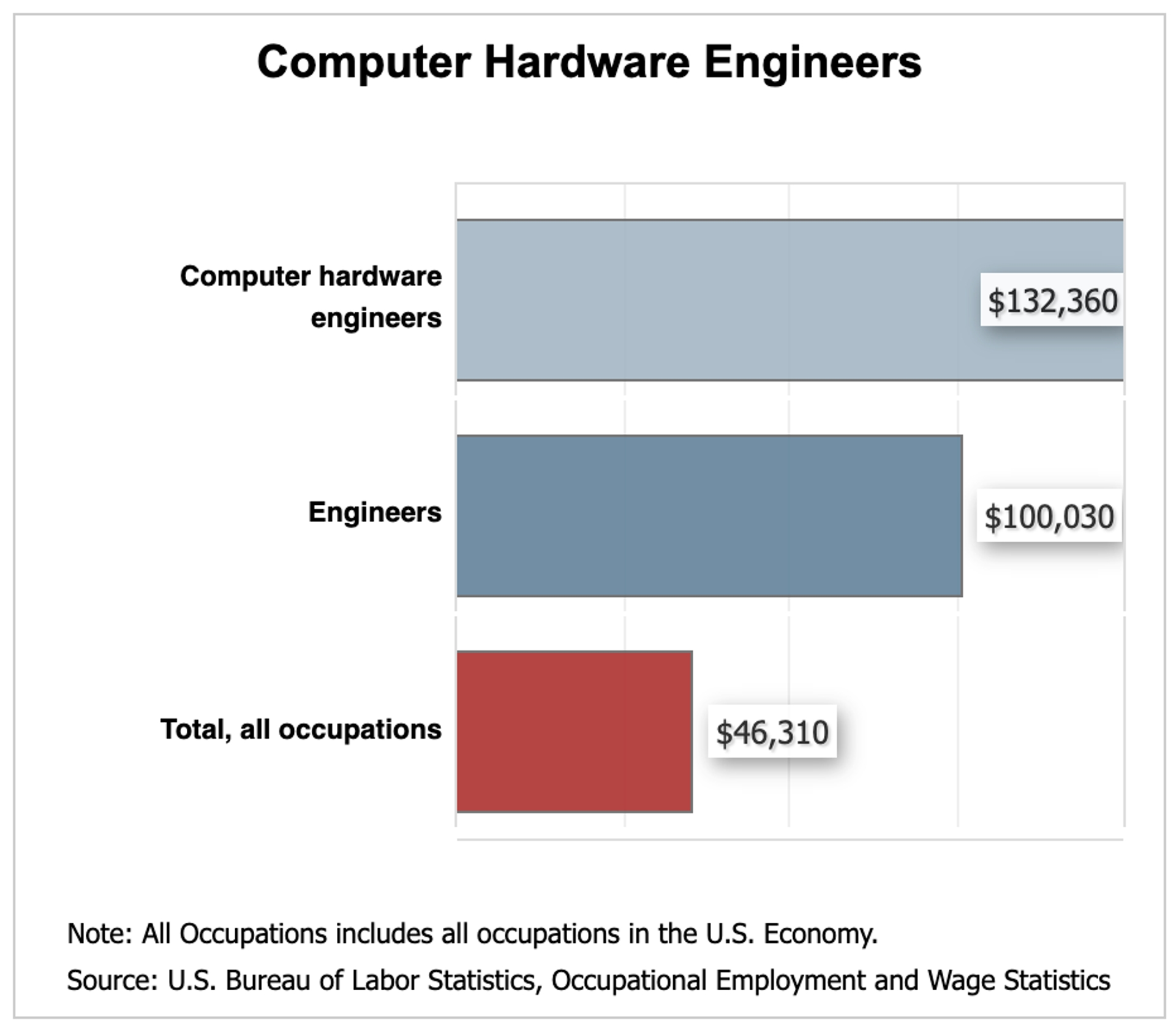
A 5% growth expectation reflects the critical role of computer engineers in evolving computing infrastructures and systems.
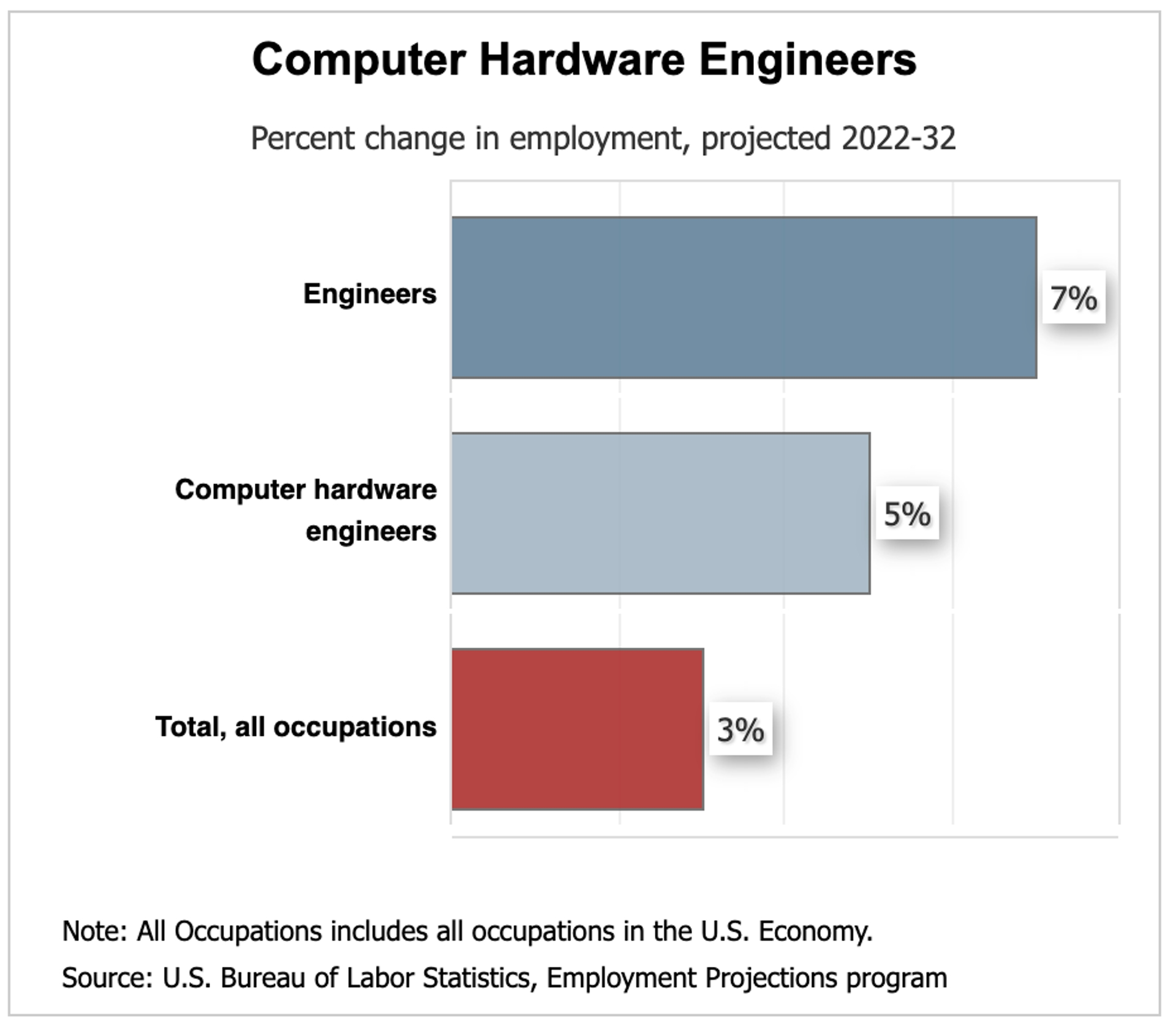
Demand for computer hardware engineers is expected to grow, as these workers are needed to design parts for manufactured products that use processors and other components, such as household appliances, medical devices, and automobiles.
# Number 8: Nuclear Engineering
Nuclear Engineering occupies the 8th position. Offering a unique path with starting salaries at $67,000 and mid-career at $122,480.
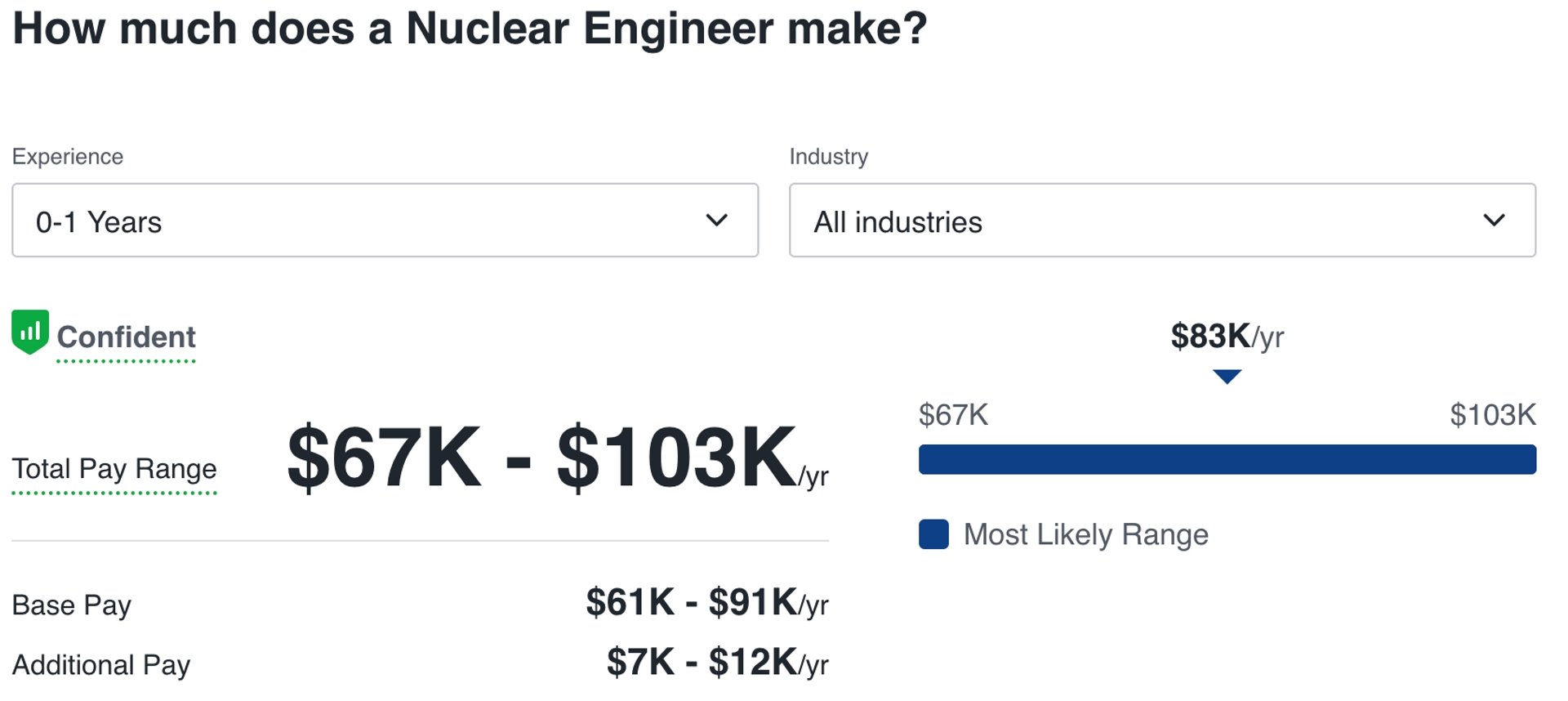
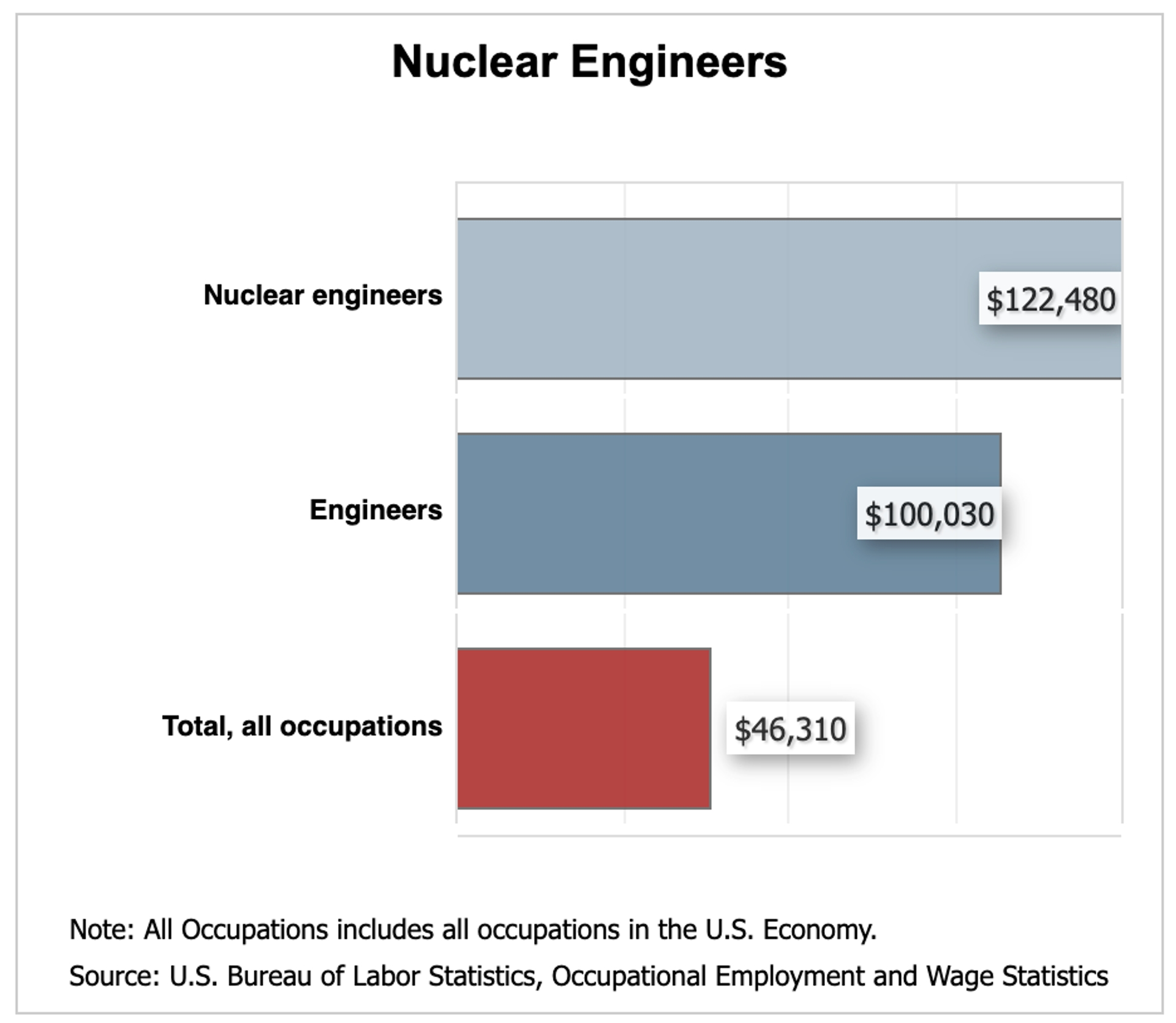
Employment of nuclear engineers is projected to show little or no change in the next 10 years.
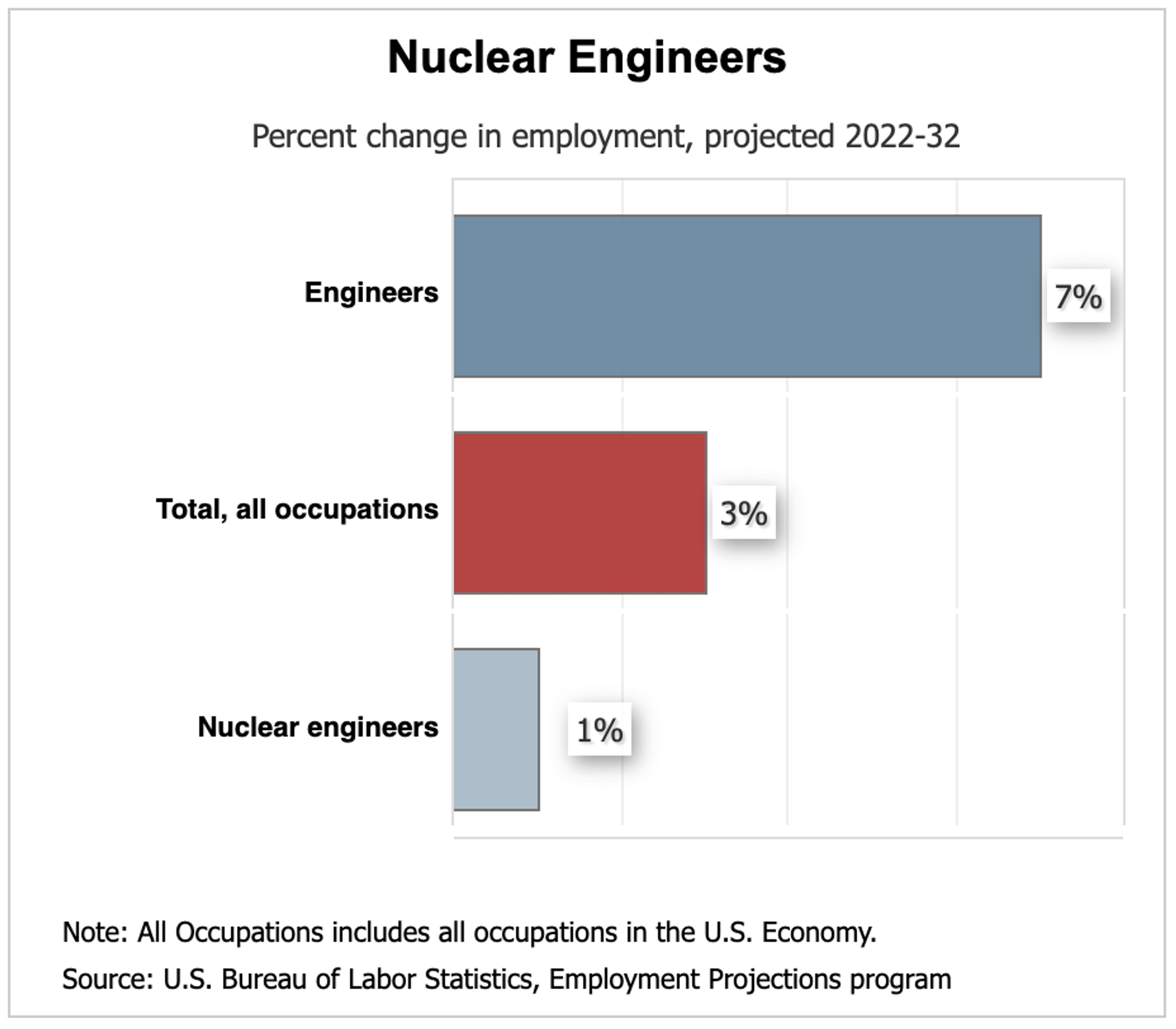
Traditionally, utilities that own or build nuclear power plants have employed the greatest number of nuclear engineers. However, the increasing viability of renewable energy and limited construction of new nuclear power plants puts economic pressure on traditional nuclear power generation and reduces demand for these engineers.
# Number 7: Petroleum Engineering
Petroleum Engineering ranks 7th, with starting salaries at $74,000, potentially hitting $131,800.
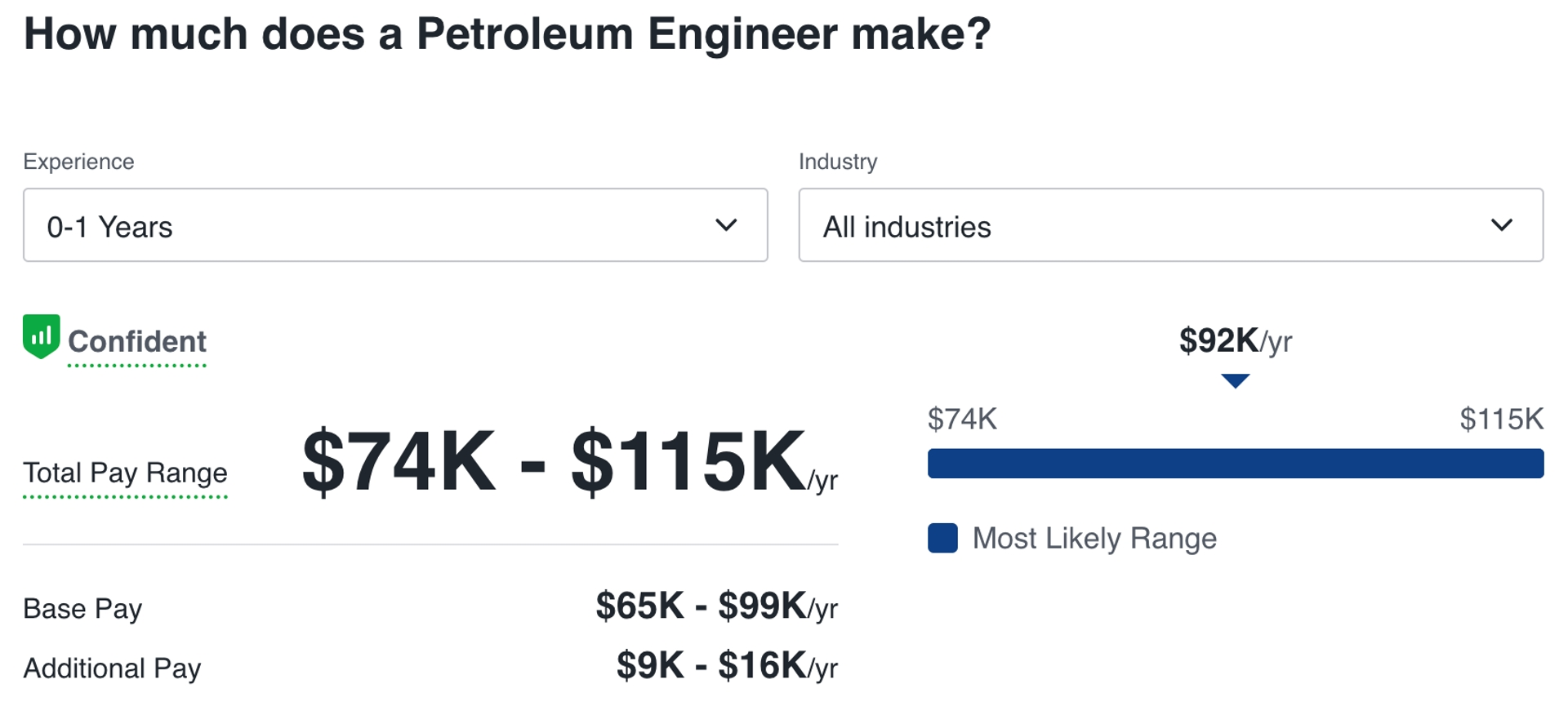

Employment of petroleum engineers is projected to grow 2 percent by 2032, about as fast as the average for all occupations.
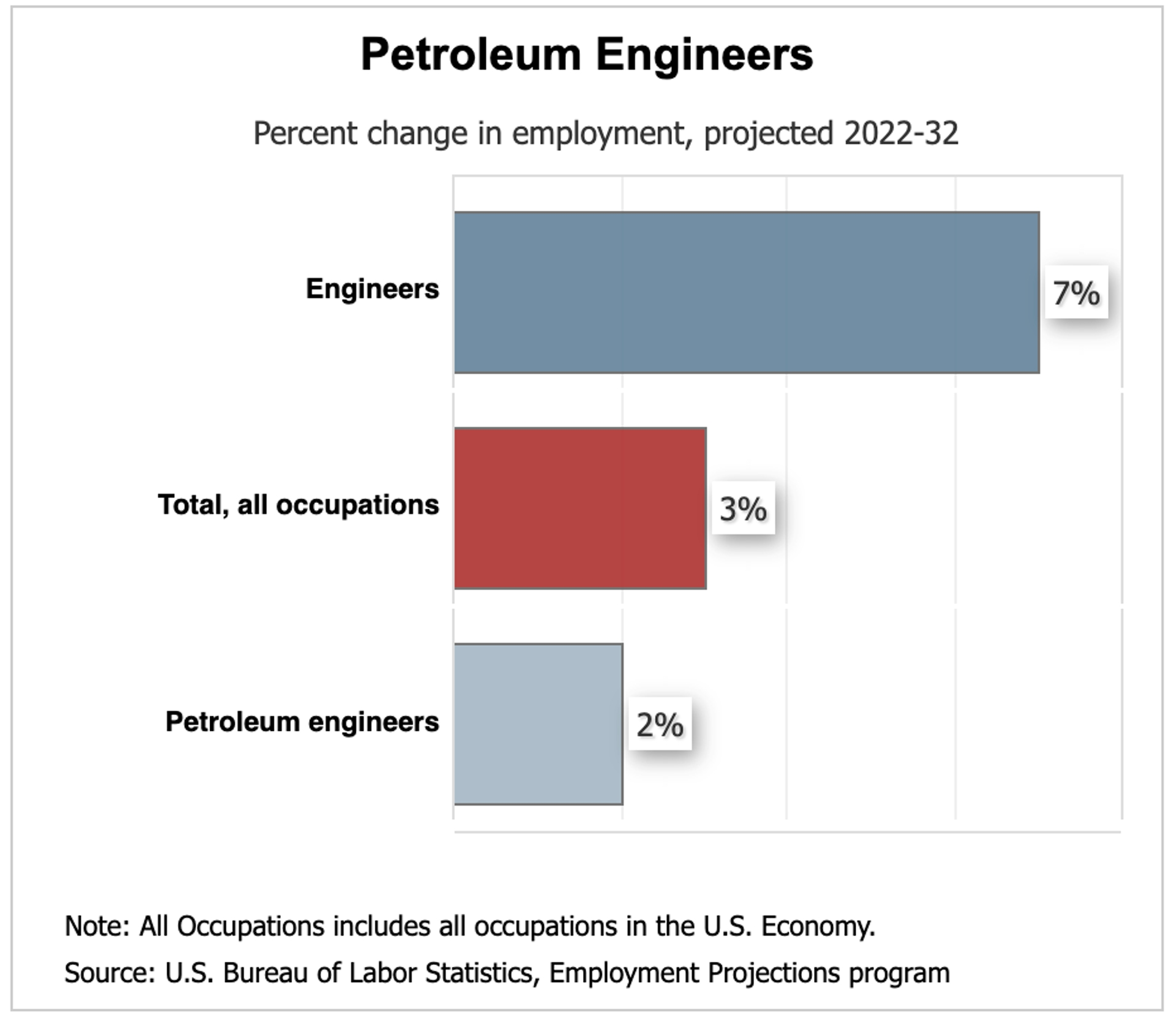
The need for petroleum engineers to help facilitate oil and gas extraction at existing operations is expected to create some demand for these workers. However, increased use of renewable energy and weaker investments in fossil fuel production may limit job growth over the projections decade.
# Number 6: Renewable Energy Engineering
Renewable Energy Engineering finds its place at number 6. As the world pivots towards sustainable energy solutions, those entering this field can expect starting salaries around $62,000, with the potential to grow to $106,000 on average.
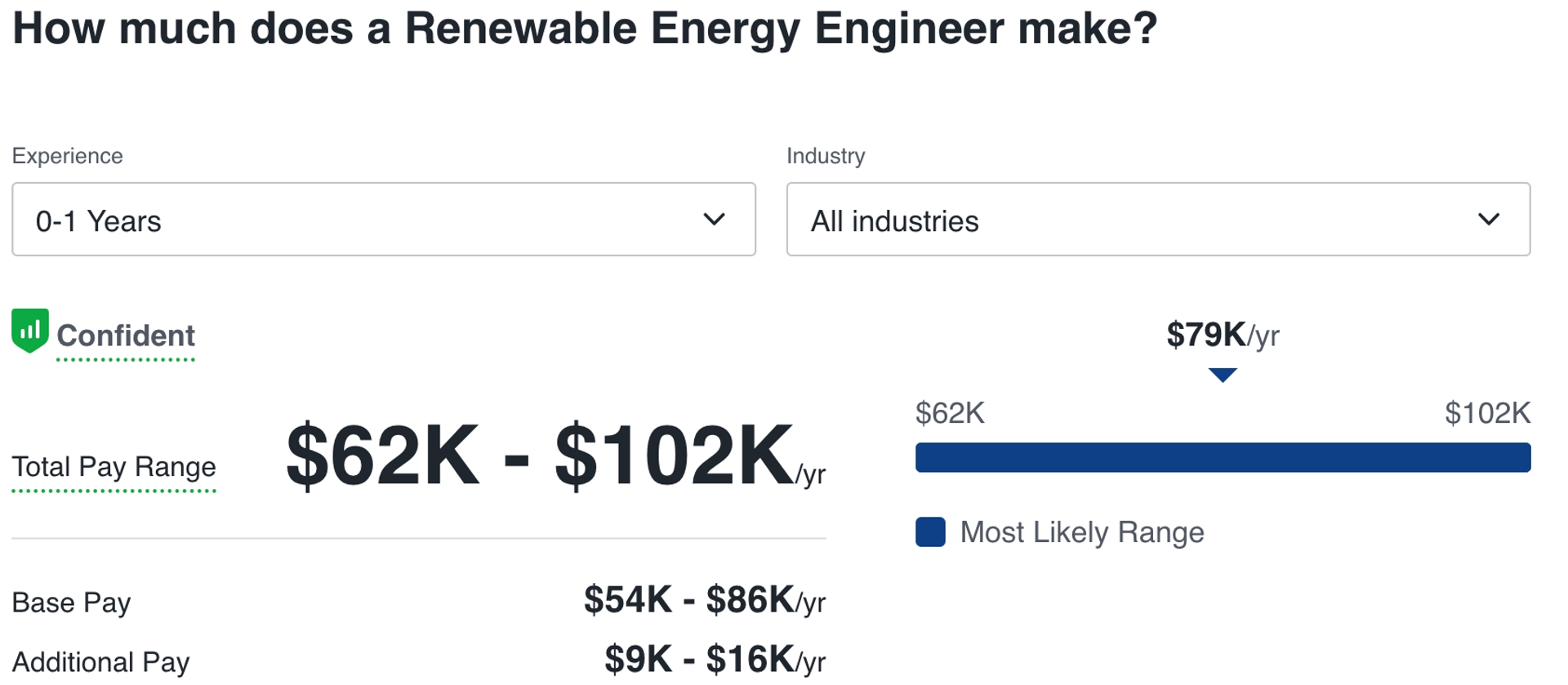
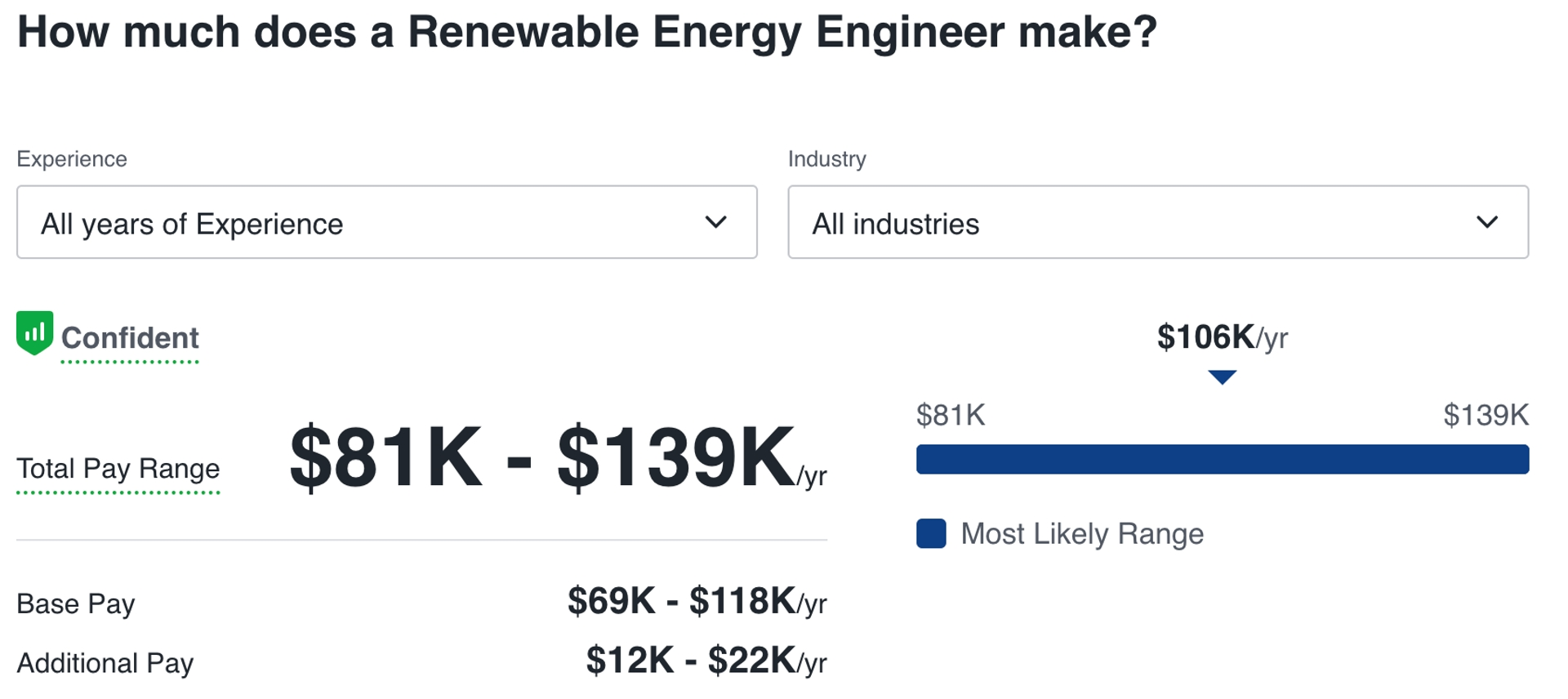
The expected demand growth is robust at 15%, reflecting the urgent global shift towards renewable energy sources like solar and wind.

# Number 5: Robotics Engineering
At number 5, Robotics Engineering emerges as a pivotal field. With automation and AI transforming industries, starting salaries are about $72,000, escalating to $118,000 on average.
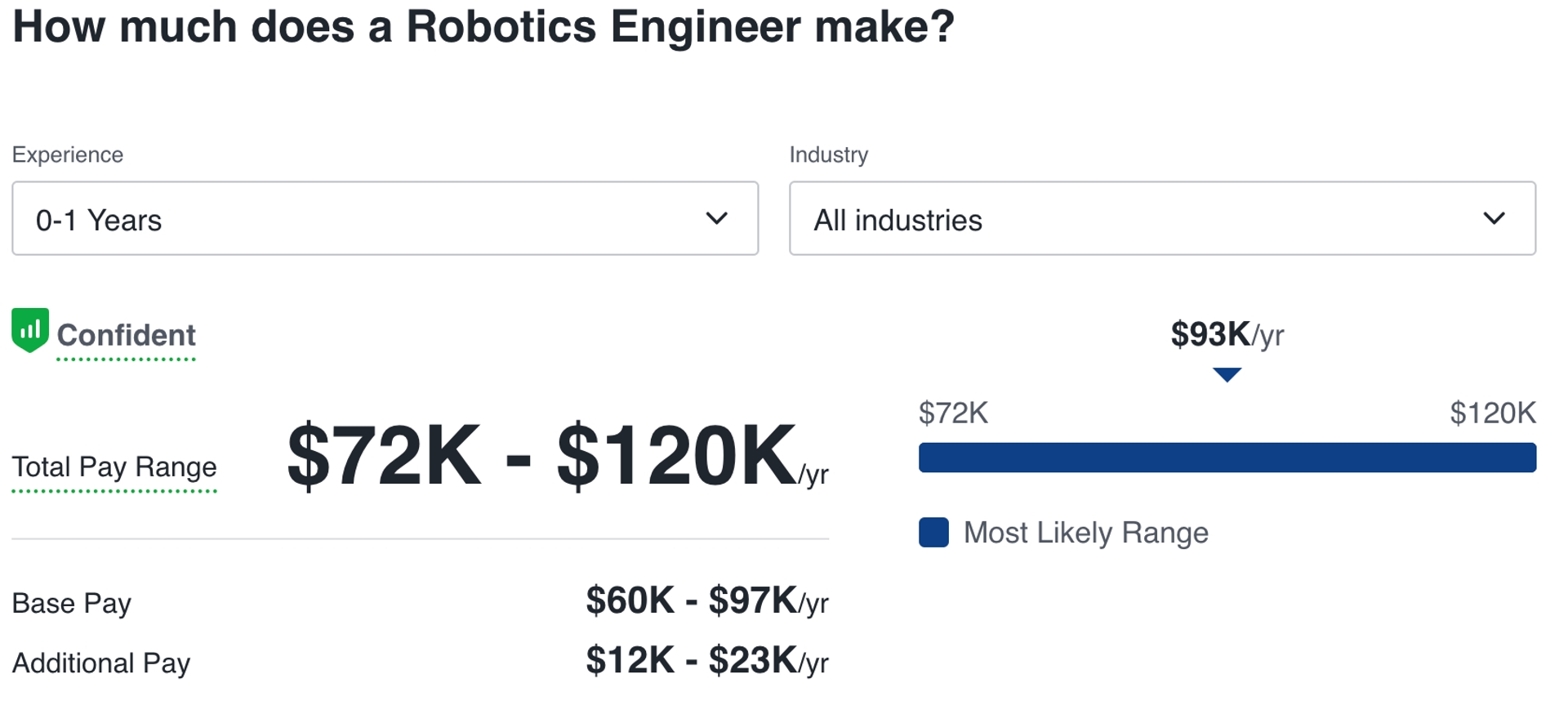
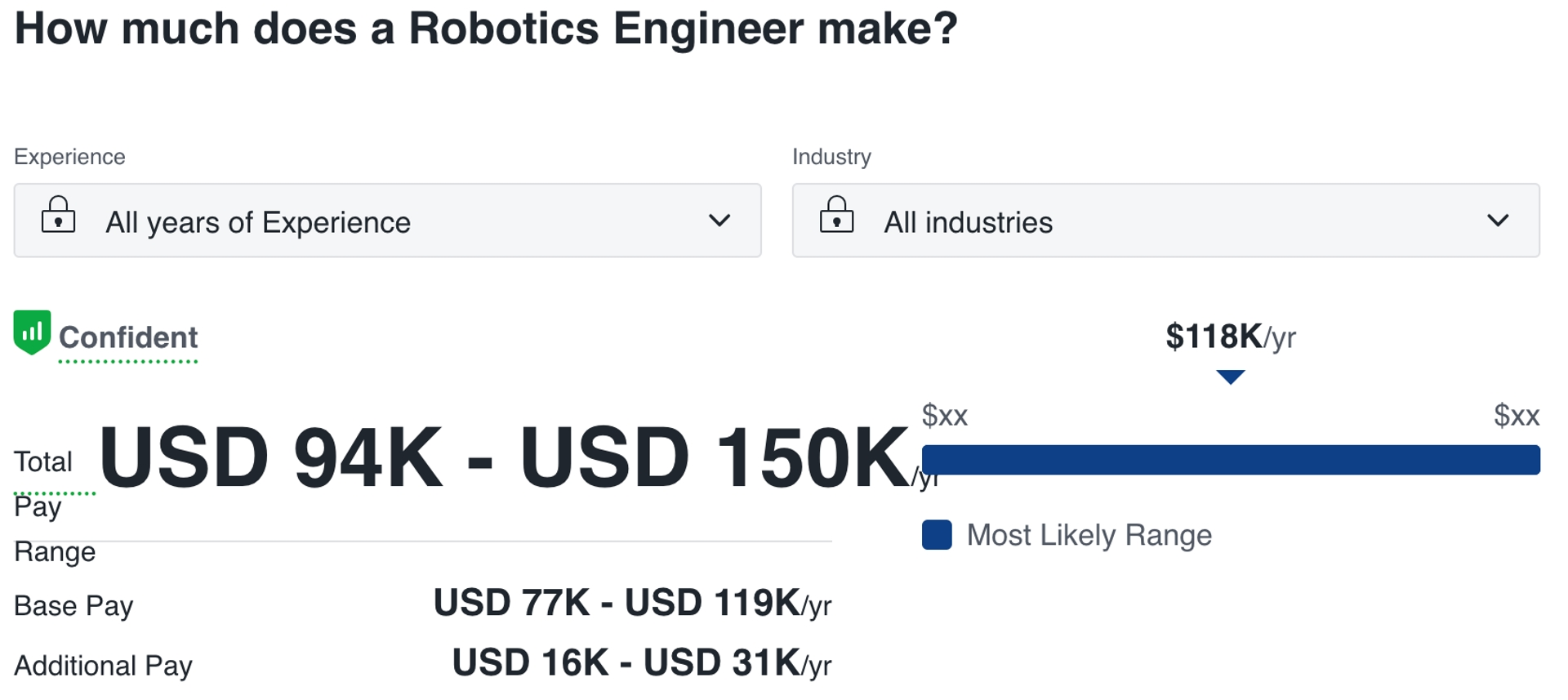
According to the Bureau of Labor Statistics, the demand for Robotics Engineers is expected to grow by 9% by 2030. This surge in demand can be attributed to the ever-increasing use of robots in industries such as manufacturing, healthcare, and defense. In fact, robots are becoming more prevalent in our daily lives, from self-driving cars to robotic surgical systems.

# Number 4: Data Engineering
Data Engineering secures the 4th spot, highlighting the critical role of data in today's digital age. Beginners can look forward to salaries of $74,000, with average earnings reaching $103,000.
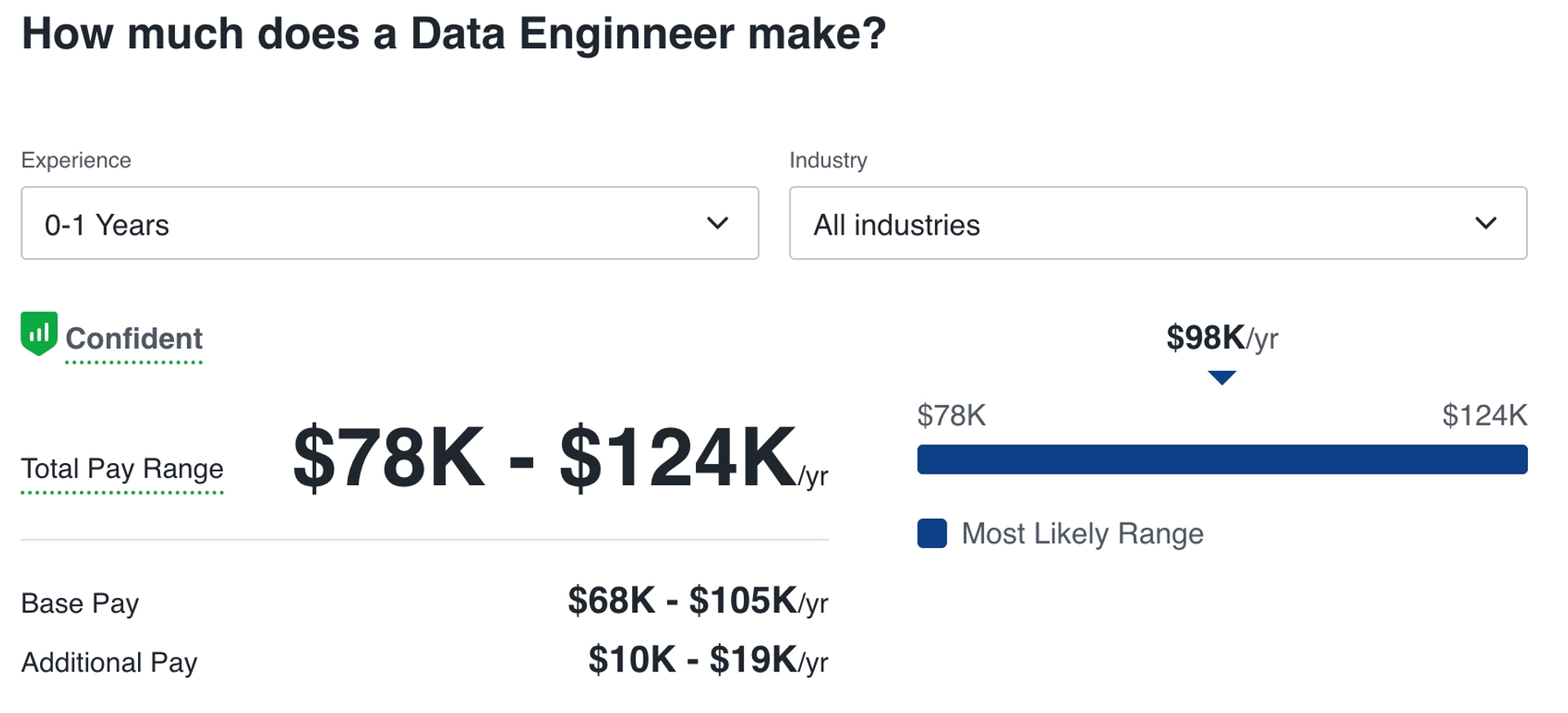
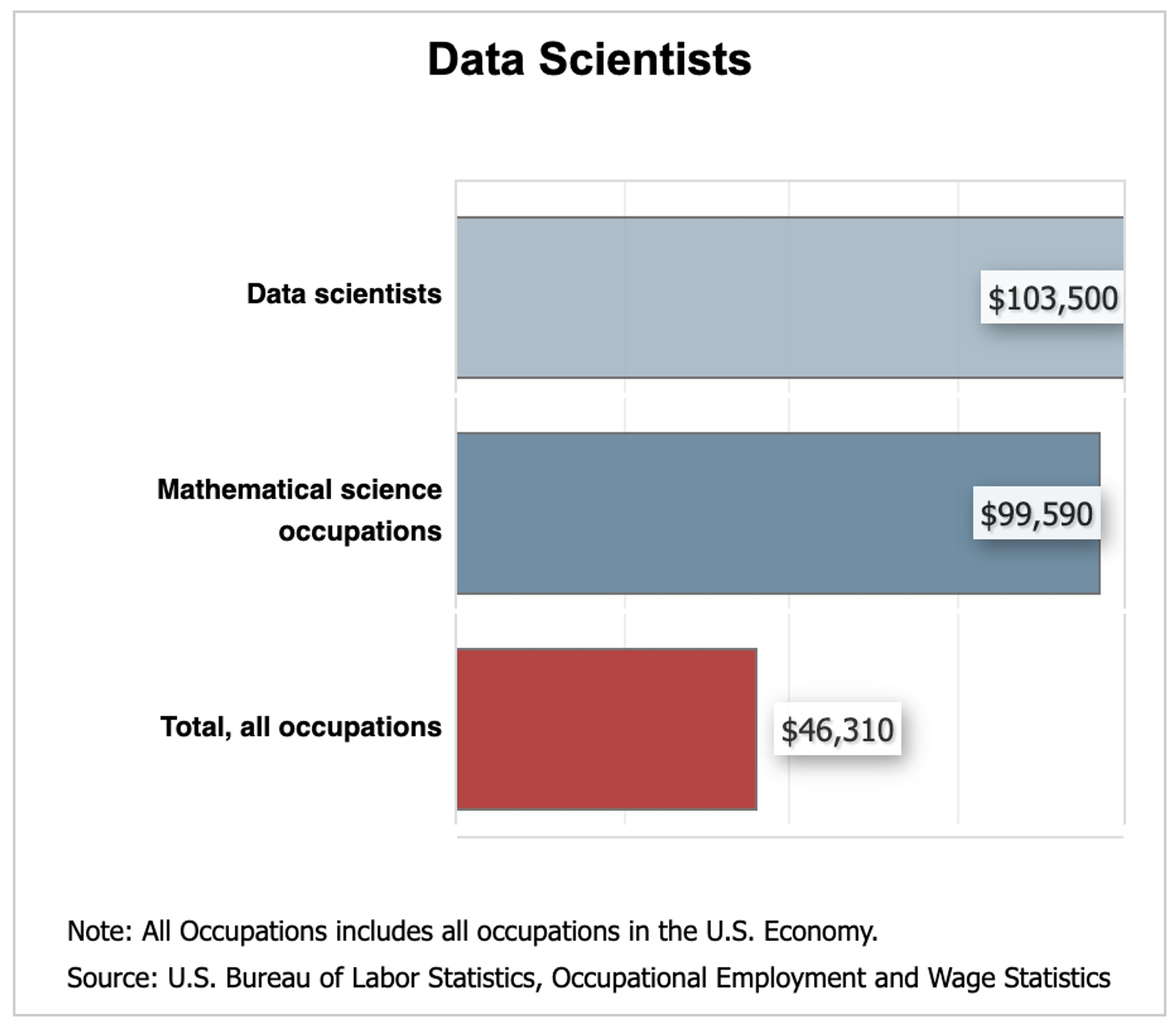
Quite a similar job which is sometimes interchangeable is Data Scientist and the starting salary here is $124,000.
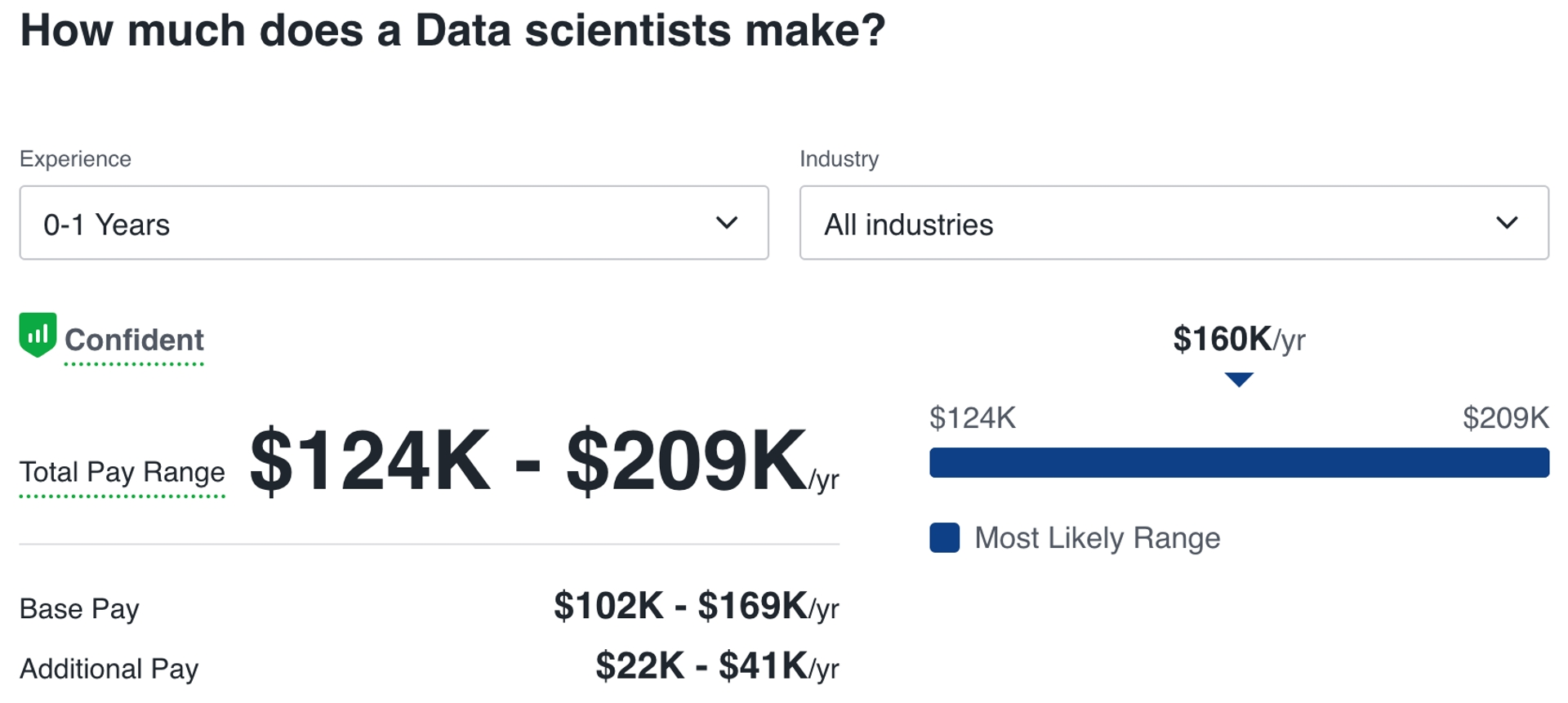
Employment of data scientists is projected to grow 35 percent, much faster than the average for all occupations.
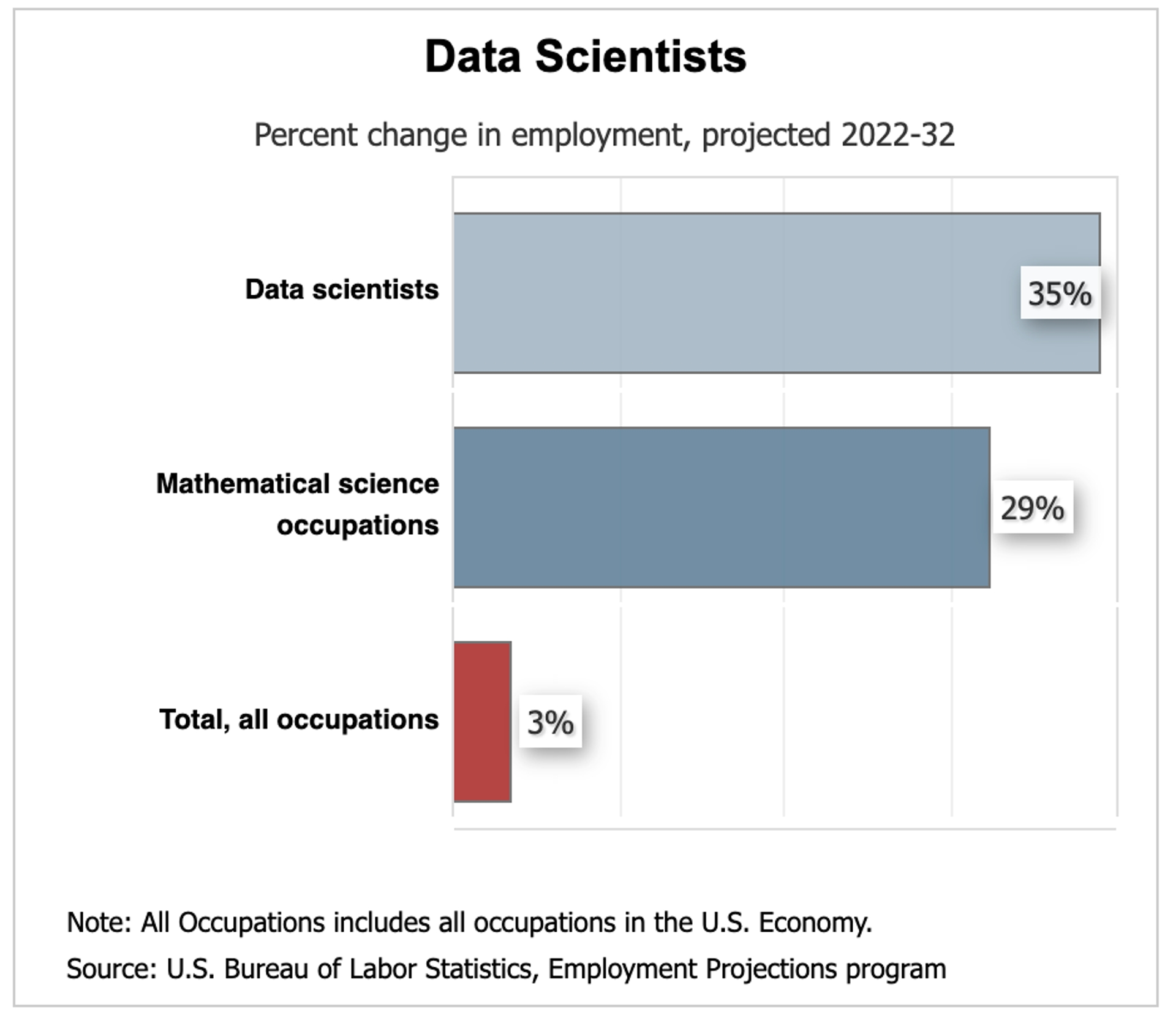
# Number 3: Cybersecurity Engineering
Cybersecurity Engineering is more relevant than ever at number 3. In an era where digital security is paramount, starting salaries are $81,000, climbing to $112,000.
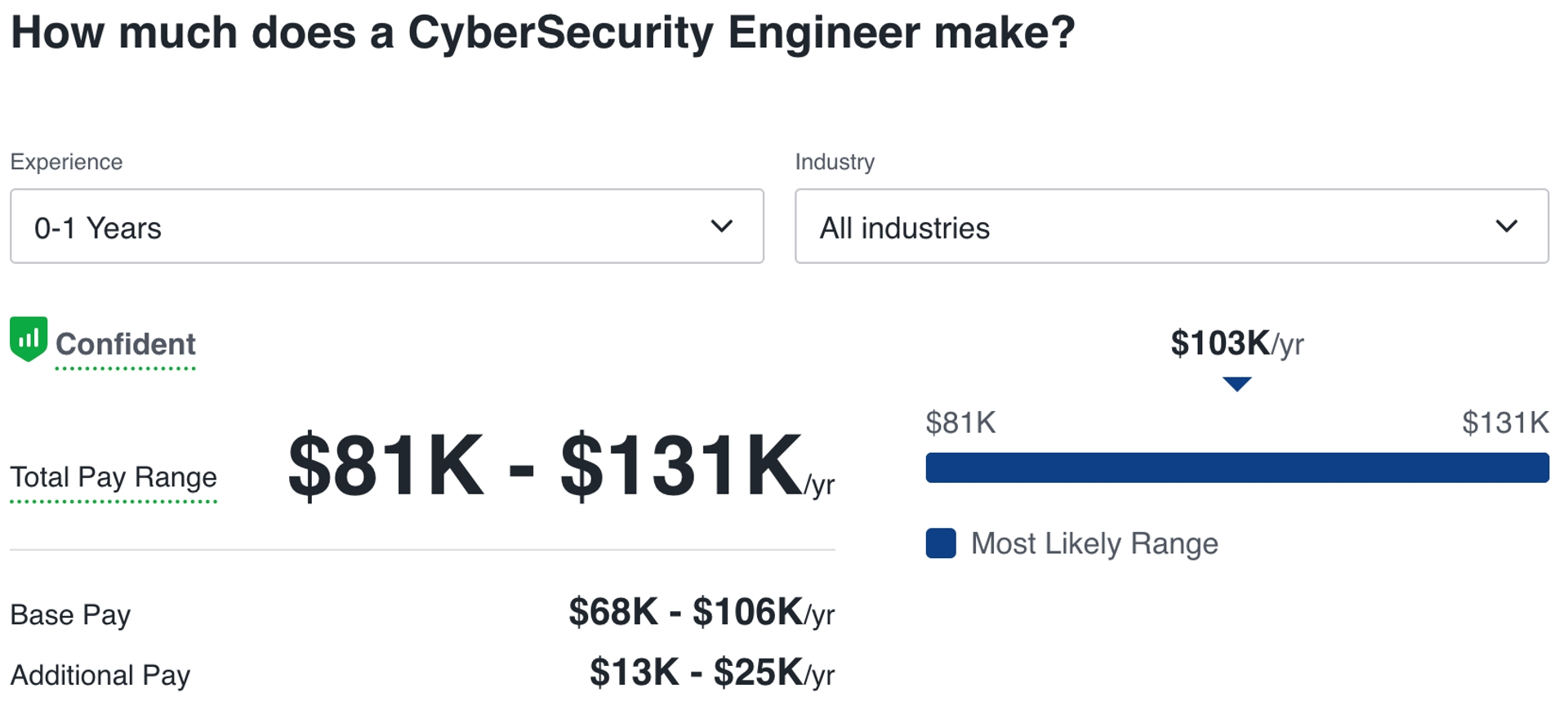
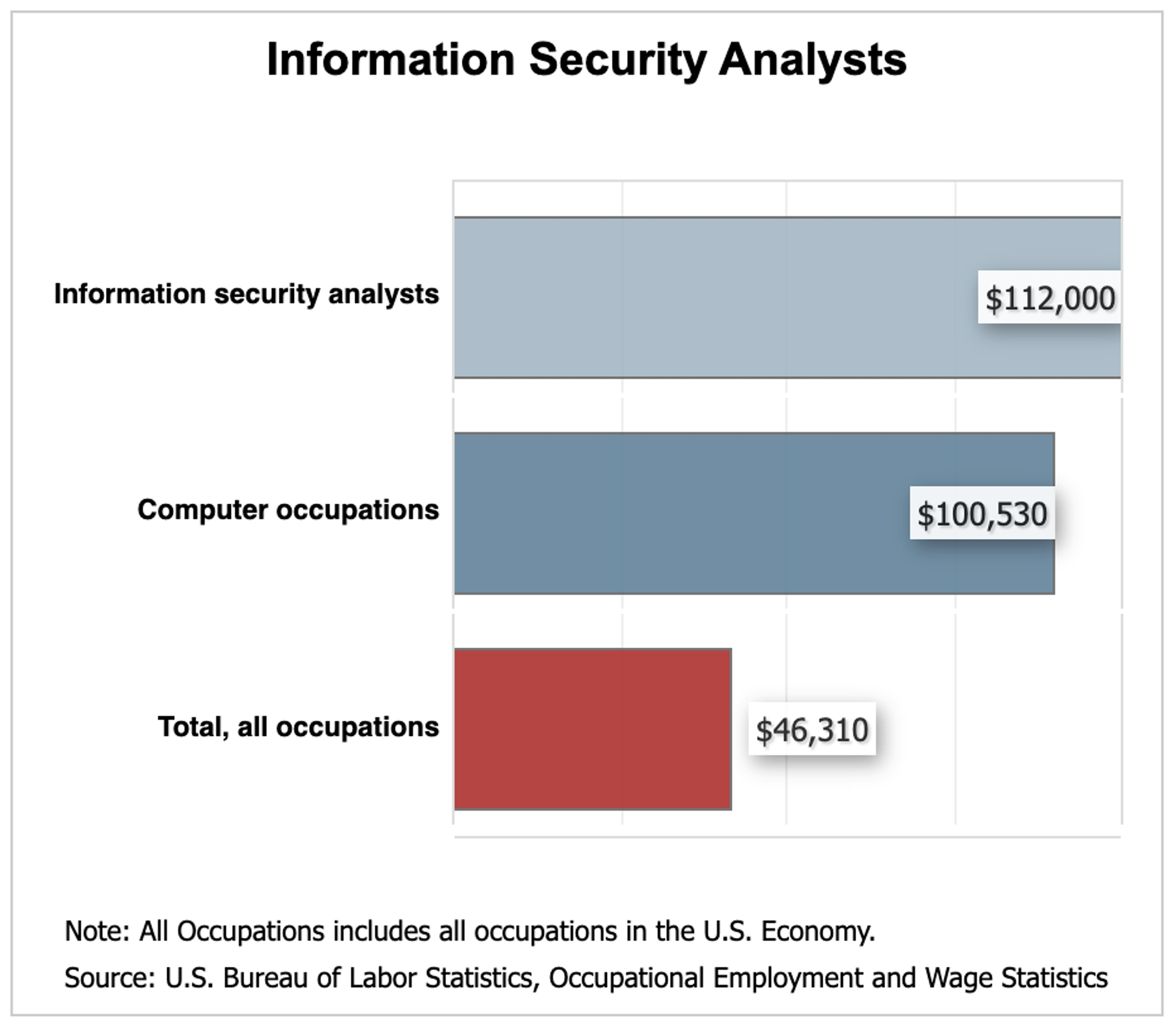
Employment of information security or cybersecurity engineers is projected to grow 32 percent in the next 10 years.

Cyberattacks have grown in frequency, and these engineers will be needed to create innovative solutions to prevent hackers from stealing critical information or creating problems for computer networks.
# Number 2: Software Engineering
At number 2, Software Engineering. It's the cornerstone of the tech industry, with beginners earning $87,000 and seasoned professionals $127,500.
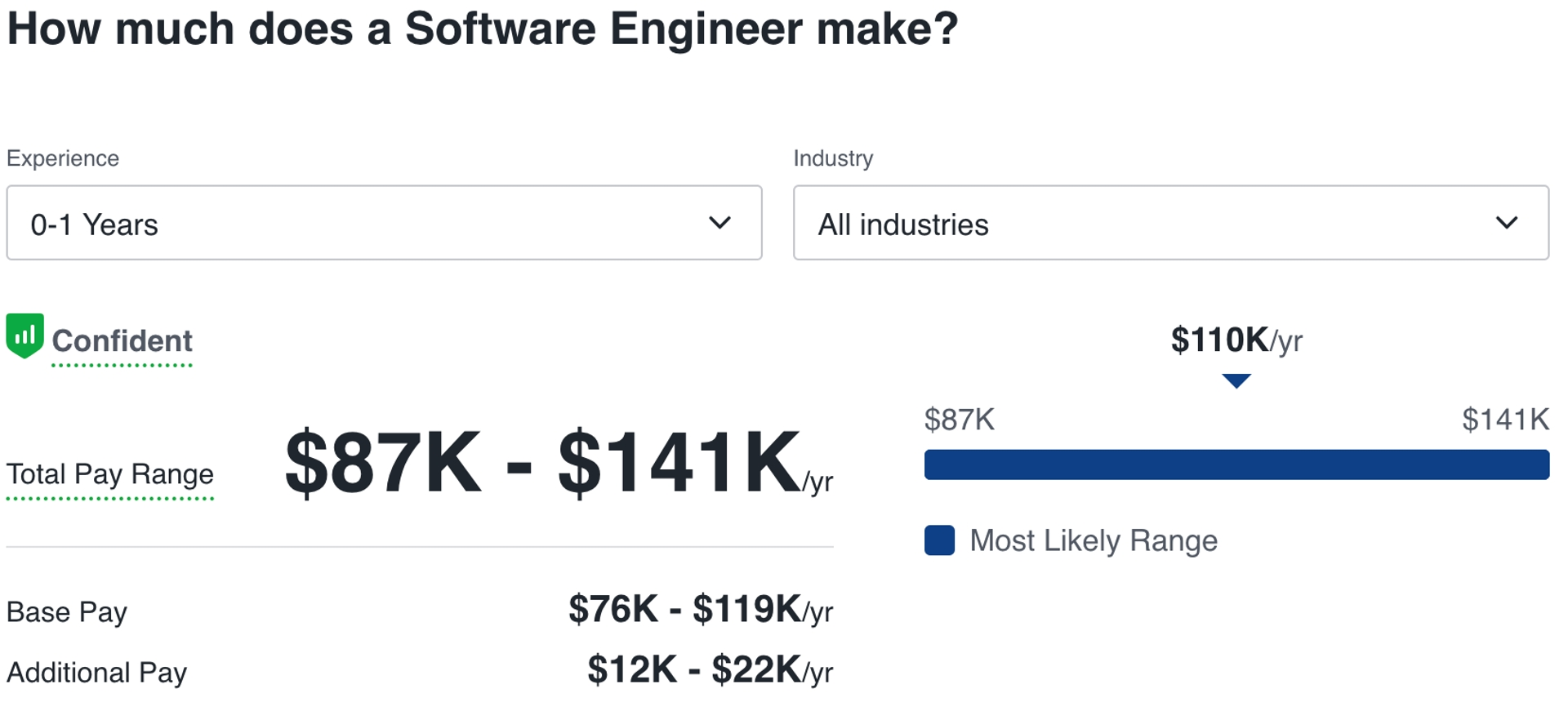
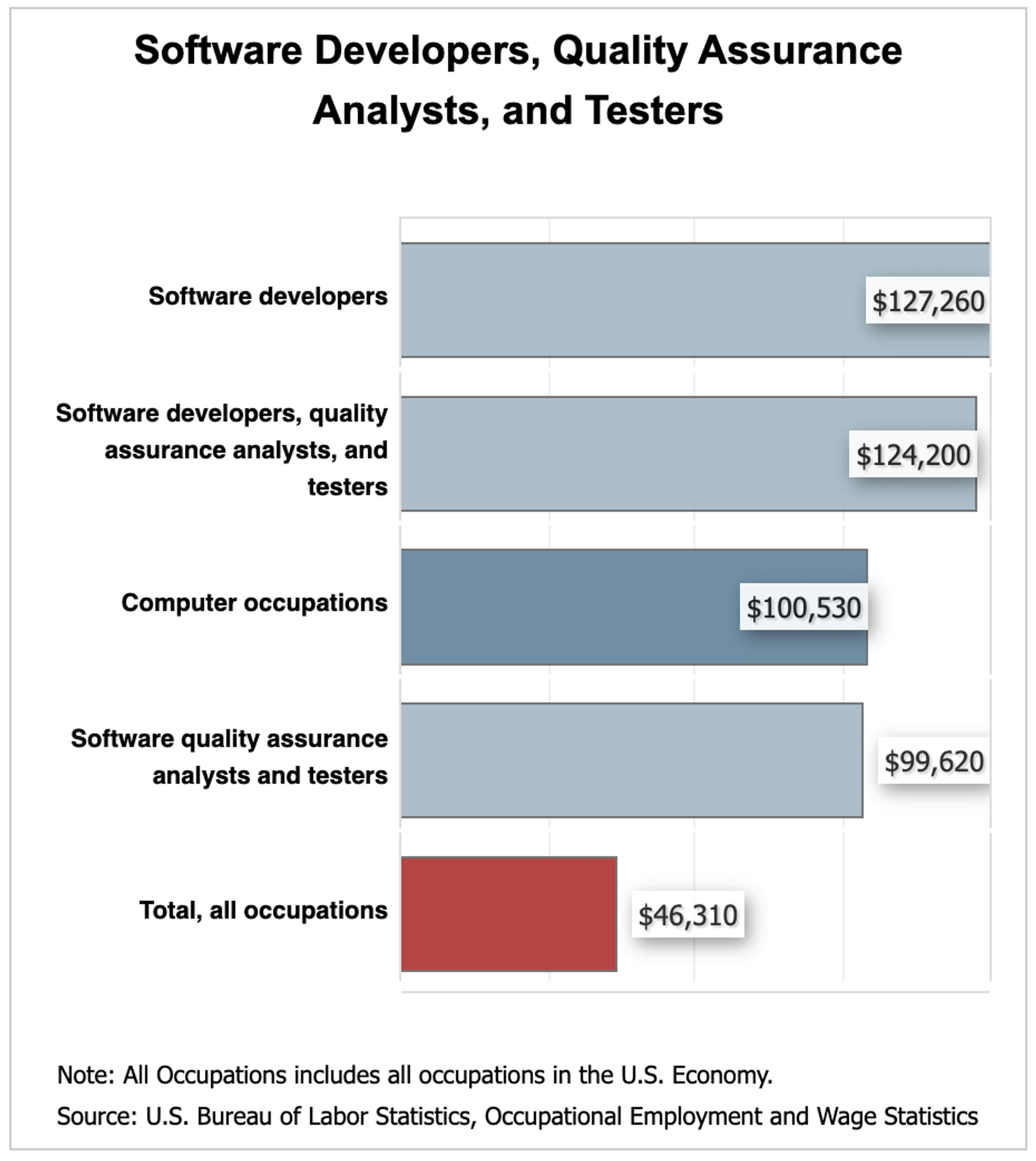
Overall employment of software developers is projected to grow 26 percent by 2032, much faster than the average for all occupations.
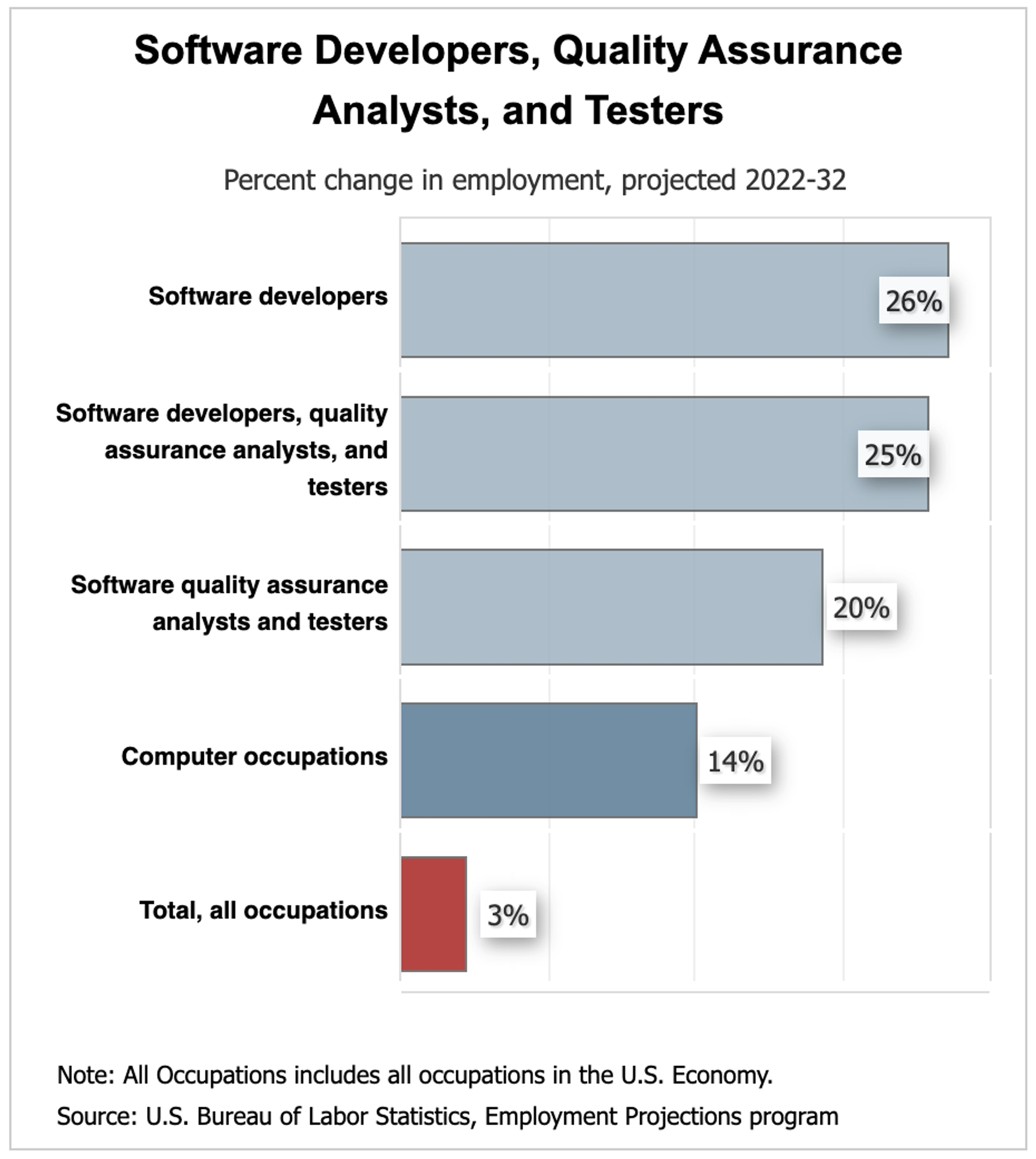
Increased demand for software developers, software quality assurance analysts, and testers will stem from the continued expansion of software development for artificial intelligence (AI), Internet of Things (IoT), robotics, and other automation applications.
# Number 1: Artificial Intelligence Engineering
Finally, at number 1, Artificial Intelligence Engineering maintains its crown. This cutting-edge field is shaping the future, with starting salaries at $91,000 and potential average earnings of $155,000.
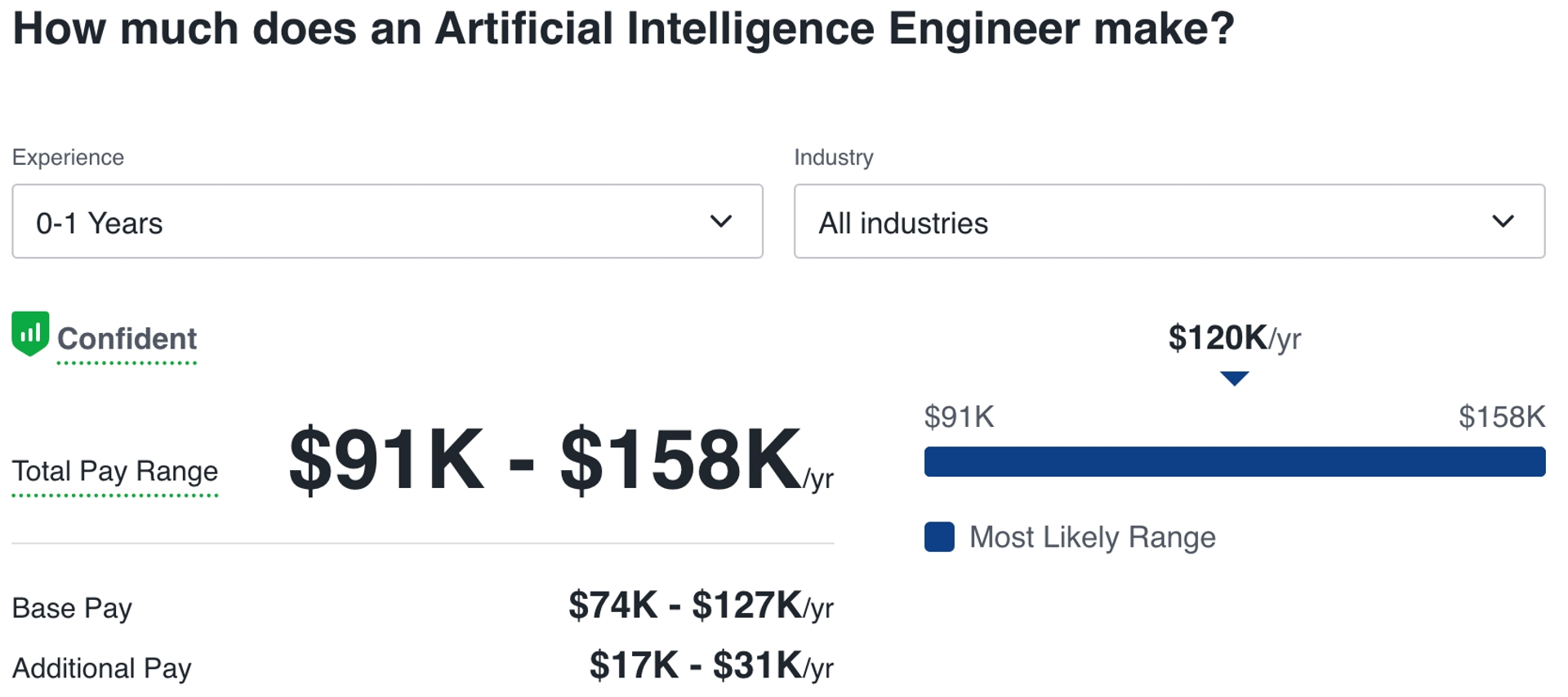
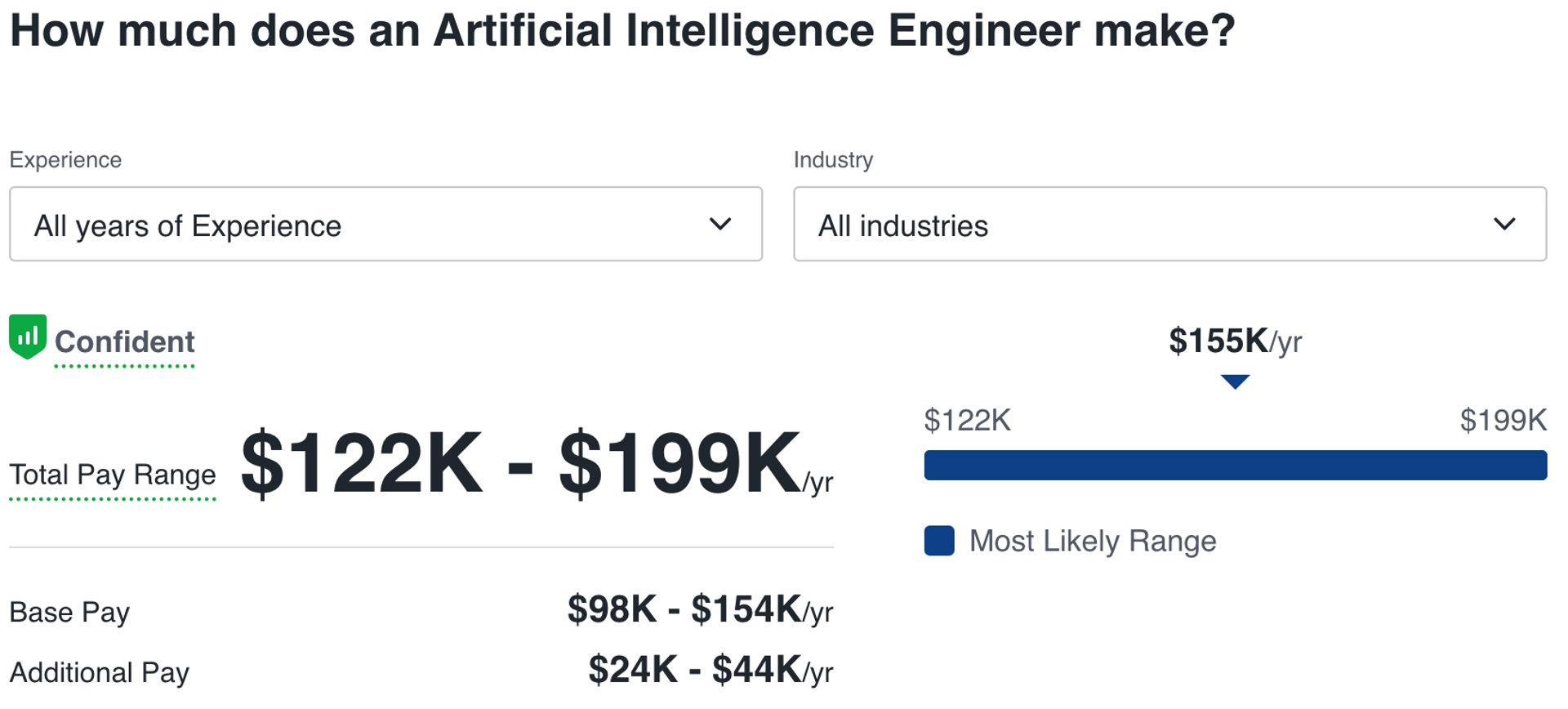
According to some statistics, a staggering growth rate is predicted at 76.3 percent over the next 10 years demonstrating a high demand for AI specialists.

As I said earlier, my TOP-3 engineering disciplines and engineering majors are AI Engineering and all engineering fields related to IT, but if you are way far from IT and hate programming, coding, etc. I would suggest looking at Biomedical Engineering, and Agricultural Engineering. When it comes to IT, it's easy to see that it's a big part of our present and will be in the future too. So why do I favor Biomedical and Agricultural Engineering? It's because the world's population is increasing quickly, and with more people, there's going to be a bigger demand for food and health care.
It’s Time to Act!
EngineerNow helps you craft a resume that employers will notice. Start today! Your Perfect Resume in One Click!
CREATE RESUME20 декабря 2024 - 23 минуты чтения
Шаблоны резюме промышленного инженера с примерами и советами15 января 2025 - 24 минуты чтения
Резюме промышленного инженера начального уровня22 января 2025 - 8 минуты чтения
Как найти работу ИНЖЕНЕРУ на Ближнем Востоке?04 октября 2024 - 8 минуты чтения
Как составить резюме инженеру в 2025 году?

